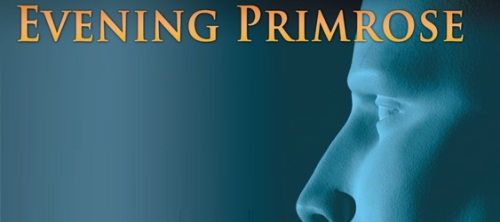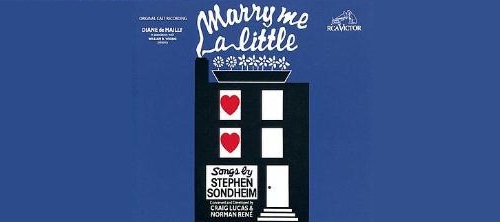Pas de biographie disponible.
Compositeur Musique additionelle Librettiste Parolier Metteur en scène Chorégraphe Producteur création Producteur version
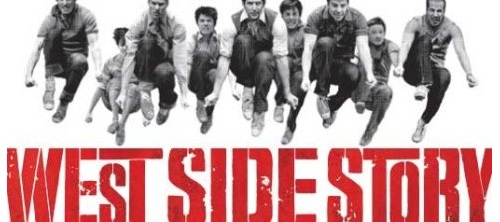
Musical
Musique: Leonard Bernstein • Paroles: Stephen Sondheim • Livret: Arthur Laurents • Production originale: 23 versions mentionnées
Dispo: Résumé Synopsis Génèse Isnpiration Liste chansons
Genèse: Genesis of the concept In 1947, Jerome Robbins approached Leonard Bernstein and Arthur Laurents about collaborating on a contemporary musical adaptation of Romeo and Juliet. He proposed that the plot focus on the conflict between an Irish American Roman Catholic family and a Jewish family living on the Lower East Side of Manhattan, during the Easter–Passover season. The girl has survived the Holocaust and emigrated from Israel; the conflict was to be centered around anti-Semitism of the Catholic "Jets" towards the Jewish "Emeralds" (a name that made its way into the script as a reference). Eager to write his first musical, Laurents immediately agreed. Bernstein wanted to present the material in operatic form, but Robbins and Laurents resisted the suggestion. They described the project as "lyric theatre", and Laurents wrote a first draft he called East Side Story. Only after he completed it did the group realize it was little more than a musicalization of themes that had already been covered in plays like Abie's Irish Rose. When he opted to drop out, the three men went their separate ways, and the piece was shelved for almost five years. In 1955, theatrical producer Martin Gabel was working on a stage adaptation of the James M. Cain novel Serenade, about an opera singer who comes to the realization he is homosexual, and he invited Laurents to write the book. Laurents accepted and suggested Bernstein and Robbins join the creative team. Robbins felt if the three were going to join forces, they should return to East Side Story, and Bernstein agreed. Laurents, however, was committed to Gabel, who introduced him to the young composer/lyricist Stephen Sondheim. Sondheim auditioned by playing the score for Saturday Night, his musical that was scheduled to open in the fall. Laurents liked the lyrics but was not impressed with the music. Sondheim did not care for Laurents' opinion. Serenade ultimately was shelved. Laurents was soon hired to write the screenplay for a remake of the 1934 Greta Garbo film The Painted Veil for Ava Gardner. While in Hollywood, he contacted Bernstein, who was in town conducting at the Hollywood Bowl. The two met at the Beverly Hills Hotel, and the conversation turned to juvenile delinquent gangs, a fairly recent social phenomenon that had received major coverage on the front pages of the morning newspapers due to a Chicano turf war. Bernstein suggested they rework East Side Story and set it in Los Angeles, but Laurents felt he was more familiar with Puerto Ricans and Harlem than he was with Mexican Americans and Olvera Street. The two contacted Robbins, who was enthusiastic about a musical with a Latin beat. He arrived in Hollywood to choreograph the dance sequences for The King and I, and he and Laurents began developing the musical while working on their respective projects, keeping in touch with Bernstein, who had returned to New York. When the producer of The Painted Veil replaced Gardner with Eleanor Parker and asked Laurents to revise his script with her in mind, he backed out of the film, freeing him to devote all his time to the stage musical. Collaboration and developmentIn New York, Laurents went to the opening night party for a new play by Ugo Betti, and there he met Sondheim, who had heard that East Side Story, now retitled West Side Story, was back on track. Bernstein had decided he needed to concentrate solely on the music, and he and Robbins had invited Betty Comden and Adolph Green to write the lyrics, but the team opted to work on Peter Pan instead. Laurents asked Sondheim if he would be interested in tackling the task. Initially he resisted, because he was determined to write the full score for his next project (Saturday Night had been aborted), but Oscar Hammerstein convinced him that he would benefit from the experience, and he accepted. Meanwhile, Laurents had written a new draft of the book changing the characters' backgrounds: Anton, once an Irish American, was now of Polish and Irish descent, and the formerly Jewish Maria had become a Puerto Rican. The original book Laurents wrote closely adhered to Romeo and Juliet, but the characters based on Rosaline and the parents of the doomed lovers were eliminated early on. Later the scenes related to Juliet's faking her death and committing suicide also were deleted. Language posed a problem; four-letter curse words were uncommon in the theatre at the time, and slang expressions were avoided for fear they would be dated by the time the production opened. Laurents ultimately invented what sounded like real street talk but actually was not: "cut the frabba-jabba", for example.[12] Sondheim converted long passages of dialogue, and sometimes just a simple phrase like "A boy like that would kill your brother", into lyrics. With the help of Oscar Hammerstein, Laurents convinced Bernstein and Sondheim to move "One Hand, One Heart", which he considered too pristine for the balcony scene, to the scene set in the bridal shop, and as a result "Tonight" was written to replace it. Laurents felt that the building tension needed to be alleviated in order to increase the impact of the play's tragic outcome, so comic relief in the form of Officer Krupke was added to the second act. He was outvoted on other issues: he felt the lyrics to "America" and "I Feel Pretty" were too witty for the characters singing them, but they stayed in the score and proved to be audience favorites. Another song, "Kid Stuff", was added and quickly removed during the Washington, D.C. tryout when Laurents convinced the others it was helping tip the balance of the show into typical musical comedy. Bernstein composed West Side Story and Candide concurrently, which led to some switches of material between the two works. Tony and Maria's duet, "One Hand, One Heart", was originally intended for Cunegonde in Candide. The music of "Gee, Officer Krupke" was pulled from the Venice scene in Candide. Laurents explained the style that the creative team finally decided on: "Just as Tony and Maria, our Romeo and Juliet, set themselves apart from the other kids by their love, so we have tried to set them even further apart by their language, their songs, their movement. Wherever possible in the show, we have tried to heighten emotion or to articulate inarticulate adolescence through music, song or dance." The show was nearly complete in the fall of 1956, but almost everyone on the creative team needed to fulfill other commitments first. Robbins was involved with Bells Are Ringing, then Bernstein with Candide, and in January 1957 A Clearing in the Woods, Laurents' latest play, opened and quickly closed. When a backers' audition failed to raise any money for West Side Story late in the spring of 1957, only two months before the show was to begin rehearsals, producer Cheryl Crawford pulled out of the project. Every other producer had already turned down the show, deeming it too dark and depressing. Bernstein was despondent, but Sondheim convinced his friend Hal Prince, who was in Boston overseeing the out-of-town tryout of the new George Abbott musical New Girl in Town, to read the script. He liked it but decided to ask Abbott, his longtime mentor, for his opinion, and Abbott advised him to turn it down. Prince, aware that Abbott was the primary reason New Girl was in trouble, decided to ignore him, and he and his producing partner Robert Griffith flew to New York to hear the score.[19] In his memoirs, Prince recalled, "Sondheim and Bernstein sat at the piano playing through the music, and soon I was singing along with them." Production period Prince began cutting the budget and raising money. Robbins then announced he did not want to choreograph the show, but changed his mind when Prince agreed to an eight-week dance rehearsal period (instead of the customary four), since there was to be more dancing in West Side Story than in any previous Broadway show, and allowed Robbins to hire Peter Gennaro as his assistant.[20] Originally, when considering the cast, Laurents wanted James Dean for the lead role of Tony, but the actor had died before hearing of it. Sondheim found Larry Kert and Chita Rivera, who created the roles of Tony and Anita, respectively. Getting the work on stage was still not easy. Bernstein told Rolling Stone: "Everyone told us that [West Side Story] was an impossible project ... And we were told no one was going to be able to sing augmented fourths, as with "Ma-ri-a" ... Also, they said the score was too rangy for pop music ... Besides, who wanted to see a show in which the first-act curtain comes down on two dead bodies lying on the stage?... And then we had the really tough problem of casting it, because the characters had to be able not only to sing but dance and act and be taken for teenagers. Ultimately, some of the cast were teenagers, some were 21, some were 30 but looked 16. Some were wonderful singers but couldn't dance very well, or vice versa ... and if they could do both, they couldn't act." Throughout the rehearsal period, the New York newspapers were filled with articles about gang warfare, keeping the show's plot timely. Robbins kept the cast members playing the Sharks and the Jets separate in order to discourage them from socializing with each other and reminded everyone of the reality of gang violence by posting news stories on the bulletin board backstage. Robbins wanted a gritty realism from his sneaker- and jeans-clad cast. He gave the ensemble more freedom than Broadway dancers had previously been given to interpret their roles, and the dancers were thrilled to be treated like actors instead of just choreographed bodies. As the rehearsals wore on, Bernstein fought to keep his score together, as other members of the team called on him to cut out more and more of the sweeping or complex "operatic" passages. Columbia Records initially declined to record the cast album, saying the score was too depressing and too difficult. There were problems with Oliver Smith's designs. His painted backdrops were stunning, but the sets were, for the most part, either shabby looking or too stylized. Prince refused to spend money on new construction, and Smith was obliged to improve what he had as best he could with very little money to do it. The pre-Broadway run in Washington, D.C. was a critical and commercial success, although none of the reviews mentioned Sondheim, listed as co-lyricist, who was overshadowed by the better-known Bernstein. Bernstein magnanimously removed his name as co-author of the lyrics, although Sondheim was uncertain he wanted to receive sole credit for what he considered to be overly florid contributions by Bernstein. Robbins demanded and received a "Conceived by" credit, and used it to justify his making major decisions regarding changes in the show without consulting the others. As a result, by opening night on Broadway, none of his collaborators were talking to him. It has been rumored that while Bernstein was off trying to fix the musical Candide, Sondheim wrote some of the music for West Side Story, and that Bernstein's co-lyricist billing mysteriously disappeared from the credits of West Side Story during the tryout, presumably as a trade-off. However, Suskin states in Show Tunes that "As the writing progressed and the extent of Bernstein's lyric contributions became less, the composer agreed to rescind his credit...Contrary to rumor, Sondheim did not write music for the show; his only contribution came on "Something's Coming", where he developed the main strain of the chorus from music Bernstein wrote for the verse.) Original Broadway production After auditions in Washington, D.C. and Philadelphia beginning in August 1957, the original Broadway production opened at the Winter Garden Theatre on September 26, 1957 to positive reviews. The production was directed and choreographed by Jerome Robbins, produced by Robert E. Griffith and Harold Prince and starred Larry Kert as Tony, Carol Lawrence as Maria, Chita Rivera as Anita and David Winters as Baby John, the youngest of the gang members. Robbins won the Tony Award for Best Choreographer, and Oliver Smith won the Tony for Best Scenic Designer. Also nominated were Carol Lawrence, as Best Actress in a Supporting Role in a Musical, Max Goberman as Best Musical Director and Conductor, and Irene Sharaff for Best Costume Design. Carol Lawrence received the 1958 Theatre World Award. Lighting was designed by Jean Rosenthal. The production ran for 732 performances at the Winter Garden Theatre before touring and then returning to the Winter Garden Theatre in 1960 for another 253 performance engagement. The other principal or notable cast members in the original production were: Anybodys: Lee Becker, Riff: Michael Callan, A-Rab: Tony Mordente, Action: Eddie Roll, Big Deal: Martin Charnin, Gee-Tar: Tommy Abbott; Velma: Carole D'Andrea, Bernardo: Ken Le Roy, Chino: Jamie Sanchez, Nibbles: Ronnie Lee; Rosalia: Marilyn Cooper, Consuelo: Reri Grist, Teresita: Carmen Gutierrez, Francisca: Elizabeth Taylor; Lt. Schrank: Arch Johnson, Doc: Art Smith, and Krupke: William Bramley. Original London production The 1958 European premiere at the Manchester Opera House transferred to London, where it opened at Her Majesty's Theatre in the West End on Friday December 12, 1958 and ran until June 1961 with a total of 1,039 performances. Robbins directed and choreographed, and it was co-choreographed by Peter Gennaro, with scenery by Oliver Smith. Featured performers were George Chakiris, who won an Academy Award as Bernardo in the 1961 film version, as Riff, Marlys Watters as Maria, Don McKay as Tony, and Chita Rivera reprising her Broadway role as Anita. David Holliday, who had been playing Gladhand since the London opening, took over as Tony, playing opposite Roberta D'Esti's Maria, and Mary Preston as Anita. In February 1962, the West End (H. M. Tennent) production launched a five-month Scandinavian tour opening in Copenhagen, continuing to Oslo, Goteborg, Stockholm and Helsinki. Robert Jeffrey took over from David Holliday as Tony and Jill Martin played Maria. 1980 Broadway revival A Broadway revival opened at the Minskoff Theatre on February 14, 1980 and closed on November 30, 1980, after 333 performances. It was directed and choreographed by Robbins, with the book scenes co-directed by Gerald Freedman; Tom Abbott and Lee Becker Theodore assisted the choreography reproduction. The original scenic, lighting, and costume designs were used. It starred Ken Marshall as Tony, Hector Jamie Mercado as Bernardo, Josie de Guzman as Maria, and Debbie Allen as Anita. Both de Guzman and Allen received Tony Award nominations as Best Featured Actress in a Musical, and the musical was nominated as Best Reproduction (Play or Musical). Allen won the Drama Desk Award as Outstanding Featured Actress in a Musical. Other notable cast members in the revival included Brent Barrett as Diesel, Harolyn Blackwell as Francisca, Stephen Bogardus as Mouth Piece, Reed Jones as Big Deal, and Sammy Smith as Doc. Several dances from West Side Story were included in the Tony Award-winning 1989 Broadway production, Jerome Robbins' Broadway. 2009 Broadway revival In 2007, Arthur Laurents stated, "I've come up with a way of doing [West Side Story] that will make it absolutely contemporary without changing a word or a note." He directed a pre-Broadway production of West Side Story at the National Theatre in Washington, D.C. that ran from December 15, 2008 through January 17, 2009. The Broadway revival began previews at the Palace Theatre on February 23, 2009 and opened on March 19, 2009. The production wove Spanish lyrics and dialogue into the English libretto. The translations are by Tony Award winner Lin-Manuel Miranda. Laurents stated, "The musical theatre and cultural conventions of 1957 made it next to impossible for the characters to have authenticity. Every member of both gangs was always a potential killer even then. Now they actually will be. Only Tony and Maria try to live in a different world". In August 2009, some of the lyrics for "A Boy Like That" ("Un Hombre Asi") and "I Feel Pretty" ("Me Siento Hermosa"), which were previously sung in Spanish in the revival, were changed back to the original English.[36] However, the Spanish lyrics sung by the Sharks in the "Tonight" (Quintet) remained in Spanish. The cast featured Matt Cavenaugh as Tony, Josefina Scaglione as Maria and Karen Olivo as Anita. Olivo won the Tony Award for Best Featured Actress, while Scaglione was nominated for the award for Leading Actress. The cast recording won the Grammy Award for Best Musical Show Album. In July 2010, the producers reduced the size of the orchestra, replacing five musicians with an off-stage synthesizer. The production closed on January 2, 2011 after 748 performances and 27 previews. The revival sold 1,074,462 tickets on Broadway over the course of nearly two years.
Résumé: Située dans le New York du milieu des années 1950, l'intrigue cible surtout la rivalité entre Jets et Sharks, deux bandes de jeunes des bas-quartiers, pour le monopole du territoire. Les Sharks appartiennent à la première génération d'Américains émigrés de Porto Rico. Ils sont raillés par les Jets, jeunes de la classe ouvrière blanche qui se considèrent comme les véritables Américains car nés en Amérique, même si de parents eux-mêmes émigrés, qui d'Irlande ou de Suède ou encore de Pologne. Tony, amis du chef des Jets Riff, rencontre Maria, la sœur de Bernardo, chef des Sharks. Ils tombent amoureux pour le meilleur et le pire.
Création: 26/9/1957 - Winter Garden Theatre (Broadway) - représ.
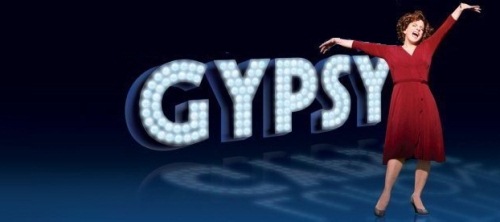
Musical
Musique: Jule Styne • Paroles: Stephen Sondheim • Livret: Arthur Laurents • Production originale: 13 versions mentionnées
Dispo: Résumé Synopsis Commentaire
Vidéos:
Gypsy s'inspire des mémoires (1957) de Gypsy Rose Lee, une célèbre strip-teaseuse et se concentre sur sa mère, Rose, dont le nom est devenu synonyme de «the ultimate show business mother». Le musical suit les rêves et les efforts de Rose pour présenter sur scène ses deux filles et jette un regard affectueux sur la dureté de la vie du show-business dans l'entre-deux guerres. Le personnage de Louise est basé sur Lee, et le personnage de June est basé sur la sœur de Lee, l'actrice June Havoc. Le musical contient de nombreuses chansons devenues des standards populaires: Everything's Coming up Roses, Together (Wherever We Go), Small World, Some People, Let Me Entertain You, All I Need Is the Girl, et Rose's Turn. Ce musical est souvent considéré comme l'une des plus belles réussites du théâtre musical classique du milieu du XXème siècle, souvent appelé le «book musical». Il est considéré comme le meilleur musical américain par de nombreux critiques et écrivains, parmi lesquels Ben Brantley («Ce qui est peut-être la plus grande de toutes les comédies musicales américaines...») et Frank Rich. Rich a écrit que «Gypsy n'est rien d'autre qu'une réponse provocante - et dans son propre style - au Roi Lear.» Le critique de théâtre Clive Barnes a écrit que «Gypsy est un des meilleurs musicals...» et décrit le personnage de Rose comme «l'un des rares personnages vraiment complexes dans la comédie musicale américaine... »
Genèse:
Résumé: Basé sur une histoire vraie, la vie de la légendaire artiste burlesque Gypsy Rose Lee, ce musical raconte l'histoire de Momma Rose et de ses deux filles, Baby June et Louise, voyageant dans tous les Etats-Unis pour présenter leur numéro de vaudeville. Mais les temps changent et les spectateurs deviennent de plus en plus exigeants. Et les deux jeunes filles ont leurs propres ambitions… La montée du burlesque s’impose et rien ne sera jamais la même chose pour Momma Rose.
Création: 21/5/1959 - Broadway Theatre (Broadway) - représ.
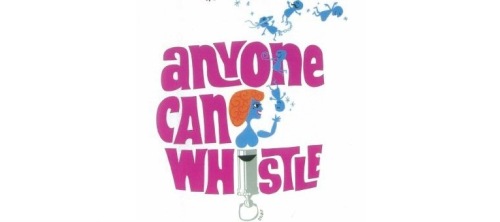
Musical
Musique: Stephen Sondheim • Paroles: Stephen Sondheim • Livret: Arthur Laurents • Production originale: 10 versions mentionnées
Dispo: Résumé Synopsis Commentaire Génèse Liste chansons
The story concerns a corrupt mayoress, an idealistic nurse, a man who may be a doctor, and various officials, patients and townspeople, all fighting to save a bankrupt town. This musical was Angela Lansbury's first stage musical role.
Genèse: Création) The show was first announced in The New York Times on October 5, 1961: "For the winter of 1962, {Arthur Laurents} is nurturing another musical project, The Natives Are Restless. The narrative and staging will be Mr. Laurent's handiwork; music and lyrics that of Stephen Sondheim. A meager description was furnished by Mr. Laurents, who refused to elaborate. Although the title might indicate otherwise, it is indigenous in content and contemporary in scope. No producer yet." No news of the show appeared until July 14, 1963, in an article in The New York Times about Kermit Bloomgarden, where it discussed the four shows he was producing for the coming season; two were maybes, two were definite. One of the latter being a Sondheim-Laurents musical (now named Side Show). In a letter to Bloomgarden from Laurents, he wrote, "I beg you not to mention the money problems or any difficulties to Steve anymore. It depresses him terribly and makes it terribly difficult for him to work... It is damn hard to concentrate ... when all the atmosphere is filled with gloom and forebodings about will the show get the money to go on? ... Spare him the gory details." This behavior is considered unusual for Laurents, which runs contrary to his current reputation. Sondheim discovered that Laurents hated doing backers' auditions and he took over that responsibility, playing and singing more than 30. They found 115 investors to back the $350,000 production, including Richard Rodgers and Sondheim's father. Eager to work with both Laurents and Sondheim, Angela Lansbury accepted the lead role as Mayoress Cora Hoover Hooper, despite her strong misgivings about the script and her ability to handle the score. Also signed were Lee Remick as Nurse Fay Apple and Harry Guardino as Hapgood. Laurents had wanted Barbra Streisand for the role of Fay, but she turned it down to star in Funny Girl. Following several weeks of rehearsals in New York City, the company moved to Philadelphia for a pre-Broadway tryout period. The reviews were brutal and the audiences hostile, talking back to the cast and walking out in droves. Director Laurents, ignoring criticism about the show's message being trite and its absurdist style difficult to comprehend, poured his energies into restaging rather than dealing with the crux of the problem. Also hampering the production was the fact that Lansbury was being overshadowed by actor Henry Lascoe (whose sudden death of a heart attack on stage, in California while taping a TV episode of "Day in Court", resolved that problem in an unexpected way). Productions After multiple revisions, the show opened on Broadway on April 4, 1964 at the Majestic Theatre, where it closed after 9 performances and 12 previews, unable to overcome the generally negative reviews it had received. Scenic design was by William and Jean Eckart, costume design by Theoni V. Aldredge, and lighting design by Jules Fisher.Choreographer Herbert Ross received the show's sole Tony Award nomination. The show became a cult favorite, and a truncated original cast recording released by Columbia Records sold well among Sondheim fans and musical theatre buffs. "There Won't Be Trumpets," a song cut during previews, has become a favorite of cabaret performers. On April 8, 1995, a staged concert was held at Carnegie Hall in New York City as a benefit for the Gay Men's Health Crisis. The concert was recorded by Columbia Records, preserving for the first time musical passages and numbers not included on the original Broadway cast recording. (For example, the cut song "It's Always A Woman" was included at this concert.) Lansbury served as narrator, with Madeline Kahn as Cora, Bernadette Peters as Fay, and Scott Bakula as Hapgood. Additional cast included Chip Zien, Ken Page, and Harvey Evans, the only original cast member to reprise his role. In 2003, Sony reissued the original Broadway cast recording on compact disc. Two revivals were staged that year, one in London, at the Bridewell Theatre, and one in Los Angeles, at the Matrix Theatre. The Ravinia Festival, Highland Park, Illinois presented a staged concert on August 26 and 27, 2005, with Audra McDonald (Fay), Michael Cerveris (Hapgood) and Patti LuPone (Cora). On January 11, 2008, Talk Is Free Theatre presented the Canadian professional premiere (in concert) at the Gryphon Theatre in Barrie, Ontario, with a fundraiser performance on January 13 at the Diesel Playhouse in Toronto, Ontario. It starred Adam Brazier as Hapgood, Kate Hennig as Cora, Blythe Wilson as Fay, and Richard Ouzounian as Narrator, who also served as director. Choreography was by Sam Strasfeld. Additional cast included Juan Chioran as Comptroller Shub, Jonathan Monro as Treasurer Cooley, and Mark Harapiak as Chief Magruder. Musical direction was provided by Wayne Gwillim. New York City Center Encores! presented a staged concert from April 8 through April 11, 2010, with Sutton Foster as Nurse Fay Apple, Donna Murphy as Mayoress Cora Hoover Hooper, and Raul Esparza as Hapgood, with direction and choreography by Casey Nicholaw. The production was the second most attended in Encores! history, and Stephen Sondheim was present at the post-matinee talkback on April 10. A London production of Anyone can Whistle opened at the Jermyn Street Studio Theatre, London, in association with Primavera Productions, running from March 10, 2010 to April 17, 2010. The director is Tom Littler, with Musical Director Tom Attwood, and a cast that includes Issy van Randwyck (Mayoress), Rosalie Craig (Nurse Fay Apple) and David Ricardo-Pearce (Hapgood).
Résumé: L'intrigue se déroule dans une ville imaginaire qui a fait faillite. Elle raconte l'histoire de l'épouse impopulaire du maire, manipulatrice et corrompue, Cora Hoover Hooper et de l'infirmière un peu idéaliste, Fay Apple. L'épouse du maire avec ses vieux complices politiques inventent un miracle - de l'eau qui coule d'une pierre - ce qui devrait attirer les dollars des touristes ("Miracle Song). Ils sont défiés par Fay Apple, une infirmière sceptique du sanatorium local, le "Cookie Jar", qui projette d'utiliser ses malades pour réfuter le miracle. Les malades du "Cookie Jar " se mélangent avec la population locale, en créant chaos et confusion ("A-1 March"). J. Bowden Hapgood, un malade pris pour un psychiatre, divise la ville en deux groupes, les sains et les fous, mais refuse de divulguer lequel est lequel. L'infirmière Apple, déterminée à apprendre la vérité au sujet du "miracle", se déguise comme un enquêteur français ("Come Play Wiz Me"). Elle est attirée par Hapgood mais a peur ("Anyone Can Whistle"). Finalement, l'infirmière Apple expose l'avidité et le cynisme des fonctionnaires élus. Elle et Hapgood sont unis ("With So Little to Be Sure Of"). Le thème de l'histoire est que la "normalité" est un euphémisme pour maîtrise de soi, conformité et ordre, et sa morale est que le vrai miracle est simplement d'être vivant.
Création: 4/4/1964 - Majestic Theatre (Broadway) - représ.
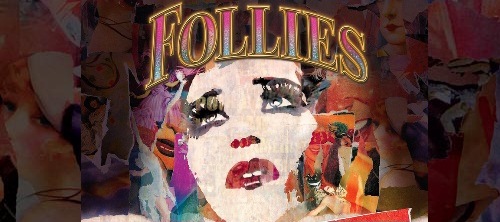
Musical
Musique: Stephen Sondheim • Paroles: Stephen Sondheim • Livret: James Goldman • Production originale: 18 versions mentionnées
Dispo: Résumé Synopsis Génèse Liste chansons
Genèse: Follies had its pre-Broadway tryout at the Colonial Theatre, Boston, from February 20 through March 20, 1971.[26][27] Follies premiered on Broadway on April 4, 1971 at the Winter Garden Theatre. It was directed by Harold Prince and Michael Bennett, with choreography by Bennett, scenic design by Boris Aronson, costumes by Florence Klotz, and lighting by Tharon Musser. It starred Alexis Smith (Phyllis), John McMartin (Ben), Dorothy Collins (Sally), Gene Nelson (Buddy), along with several veterans of the Broadway and vaudeville stage. The supporting role of Carlotta was created by Yvonne De Carlo, and usually is given to a well-known veteran performer who can belt out a song. Other notable performers in the original productions were: Fifi D'Orsay as Solange LaFitte, Justine Johnston as Heidi Schiller, Mary McCarty as Stella Deems, Arnold Moss as Dimitri Weismann, Ethel Shutta as Hattie Walker, and Marcie Stringer and Charles Welch as Emily and Theodore Whitman. The show closed on July 1, 1972 after 522 performances and 12 previews. According to Variety Magazine, the production was a "total financial failure, with a cumulative loss of $792,000." Prince planned to present the musical on the West Coast and then on a national tour. However, the show did not do well in its Los Angeles engagement and plans for a tour ended. Frank Rich, for many years the chief drama critic for The New York Times, had first garnered attention, while an undergraduate at Harvard University, with a lengthy essay for the Harvard Crimson about the show, which he had seen during its pre-Broadway run in Boston. He predicted that the show eventually would achieve recognition as a Broadway classic. Rich later wrote that audiences at the original production were baffled and restless. For commercial reasons, the cast album was cut from two LPs to one early in production. Most songs were therefore heavily abridged and several were left entirely unrecorded. According to Craig Zadan, "It's generally felt that ... Prince made a mistake by giving the recording rights of Follies to Capitol Records, which in order to squeeze the unusually long score onto one disc, mutilated the songs by condensing some and omitting others." Chapin confirms this: "Alas ... final word came from Capitol that they would not go for two records.... [Dick Jones] now had to propose cuts throughout the score in consultation with Steve." "One More Kiss" was omitted from the final release but was restored for CD release. Chapin relates that "there was one song that Dick Jones [producer of the cast album] didn't want to include on the album but which Steve Sondheim most definitely did. The song was "One More Kiss", and the compromise was that if there was time, it would be recorded, even if Jones couldn't promise it would end up on the album. (It did get recorded but didn't make its way onto the album until the CD reissue years later.)" 1972 Los Angeles The musical was produced at The Muny, St. Louis, Missouri in July 1972 and then transferred to the Shubert Theatre, Century City, California, running from July 22, 1972 through October 1, 1972. It was directed by Prince and starred Dorothy Collins (Sally; replaced by Janet Blair), Alexis Smith (Phyllis), John McMartin (Ben; replaced by Edward Winter), Gene Nelson (Buddy), and Yvonne De Carlo (Carlotta) reprising their original roles. The production was the premiere attraction at the newly constructed 1,800-seat theatre, which, ironically, was itself razed thirty years later (in 2002, in order to build a new office building), thus mirroring the Follies plot line upon which the musical is based. 1985 Wythenshawe and Lincoln Center A full production ran at the Forum Theatre, Wythenshawe, England, from 30 April 1985, directed by Howard Lloyd-Lewis, design by Chris Kinman, costumes by Charles Cusick-Smith, lighting by Tim Wratten, musical direction by Simon Lowe, and choreographed by Paul Kerryson. The cast included Mary Millar (Sally Durant Plummer), Liz Izen (Young Sally), Meg Johnson (Stella Deems), Les Want (Max Deems), Betty Benfield (Heidi Schiller), Joseph Powell (Roscoe), Chili Bouchier (Hattie Walker), Shirley Greenwood (Emily Whitman), Bryan Burdon (Theodore Whitman), Monica Dell (Solange LaFitte), Jeannie Harris (Carlotta Campion), Josephine Blake (Phyllis Rogers Stone), Kevin Colson (Ben), Debbie Snook (Young Phyllis), Stephen Hale (Young Ben), Bill Bradley (Buddy Plummer), Paul Burton (Young Buddy), David Scase (Dimitri Weismann), Lorraine Croft (Young Stella), and Meryl Richardson (Young Heidi). A staged concert at Avery Fisher Hall, Lincoln Center, was performed on September 6 and 7, 1985. The concert starred Barbara Cook (Sally), George Hearn (Ben), Mandy Patinkin (Buddy), and Lee Remick (Phyllis), and featured Carol Burnett (Carlotta), Betty Comden (Emily), Adolph Green (Theodore), Liliane Montevecchi (Solange LaFitte), Elaine Stritch (Hattie Walker), Phyllis Newman (Stella Deems), Jim Walton (Young Buddy), Howard McGillin (Young Ben), Liz Callaway (Young Sally), Daisy Prince (Young Phyllis), Andre Gregory (Dmitri), Arthur Rubin (Roscoe), and Licia Albanese (Heidi Schiller). Rich, in his review, noted that "As performed at Avery Fisher Hall, the score emerged as an original whole, in which the 'modern' music and mock vintage tunes constantly comment on each other, much as the script's action unfolds simultaneously in 1971 (the year of the reunion) and 1941 (the year the Follies disbanded)." Among the reasons the concert was staged was to provide an opportunity to record the entire score. The resulting album was more complete than the original cast album. However, director Herbert Ross took some liberties in adapting the book and score for the concert format—dance music was changed, songs were given false endings, new dialogue was spoken, reprises were added, and Patinkin was allowed to sing "The God-Why-Don't-You-Love-Me Blues" as a solo instead of a trio with two chorus girls. Portions of the concert were seen by audiences worldwide in the televised documentary about the making of the concert, also released on videotape and DVD, of 'Follies' in Concert. 1987 West End The musical played in the West End at the Shaftesbury Theatre on July 21, 1987 and closed on February 4, 1989 after 644 performances. The producer was Cameron Mackintosh, direction was by Mike Ockrent, with choreography by Bob Avian and design by Maria Bjornson. The cast featured Diana Rigg (Phyllis), Daniel Massey (Ben), Julia McKenzie (Sally), David Healy (Buddy), Lynda Baron, Leonard Sachs, Maria Charles, Pearl Carr & Teddy Johnson. Dolores Gray was praised as Carlotta.[40] During the run, Eartha Kitt replaced Gray, sparking somewhat of a comeback (she went on to perform her own one woman show at The Shaftesbury Theatre to sell-out houses for three weeks from 18 March 1989 after "Follies" closed). Other cast replacements included Millicent Martin as Phyllis. Julia McKenzie returned to the production for the final four performances. The book "was extensively reworked by James Goldman, with Sondheim's cooperation and also given an intermission." The producer Cameron Mackintosh did not like "that there was no change in the characters from beginning to end.... In the London production ... the characters come to understand each other." Sondheim "did not think the London script was as good as the original." However, he thought that it was "wonderful" that, at the end of the first act, "the principal characters recognized their younger selves and were able to acknowledge them throughout the last thirty minutes of the piece."[41] Sondheim wrote four new songs: "Country House" (replacing "The Road You Didn't Take"), "Loveland" (replacing the song of the same title), "Ah, But Underneath" (replacing "The Story of Lucy and Jessie", for the non-dancer Diana Rigg), and "Make the Most of Your Music" (replacing "Live, Laugh, Love"). Critics who had seen the production in New York (such as Frank Rich) found it substantially more "upbeat" and lacking in the atmosphere it had originally possessed. According to the Associated Press (AP) reviewer, "A revised version of the Broadway hit "Follies" received a standing ovation from its opening-night audience and raves from British critics, who said the show was worth a 16-year wait." The AP quoted Michael Convey of The Financial Times, who wrote: "'Follies' is a great deal more than a camp love-in for old burlesque buffs and Sondheim aficionados."[42] The New York Times critic wrote: "The initial critics' reviews ranged from unqualified raves to some doubts whether the reworked book of James Goldman is up to the inventiveness of Sondheim's songs. 'A truly fantastic evening,' The Financial Times concluded, while The London Daily News said, 'The musical is inspired,' and The Times described the evening as 'a wonderful idea for a show which has failed to grow into a story.'" He further commented: "In part, the show is a tribute to musical stage history, in which the 57-year-old Mr. Sondheim is steeped, for he first learned song writing at the knee of Oscar Hammerstein II and became the acknowledged master songwriter who bridged past musical stage romance into the modern musical era of irony and neurosis. Follies is a blend of both, and the new production is rounded out with production numbers celebrating love's simple hope for young lovers, its extravagant fantasies for Ziegfeld aficionados, and its fresh lesson for the graying principals." This production was also recorded on two CDs and was the first full recording. Follies was voted ninth in a BBC Radio 2 listener poll of the UK's "Nation's Number One Essential Musicals." U.S. regional productions Michigan Opera Theatre (MOT) was the first major American opera company to present Follies as part of their main stage repertoire, running from October 21, 1988 through November 6. The MOT production starred Nancy Dussault (Sally), John-Charles Kelly (Buddy), Juliet Prowse (Phyllis) and Ron Raines (Ben), Edie Adams (Carlotta), Thelma Lee (Hattie), and Dennis Grimaldi (Vincent). A production also ran from March to April 1995 at the Theatre Under the Stars, Houston, Texas and in April to May 1995 at the 5th Avenue Theatre, Seattle with Constance Towers (Phyllis), Judy Kaye (Sally), Edie Adams, Denise Darcel, Virginia Mayo and Karen Morrow (Carlotta).[48] The 1998 Paper Mill Playhouse production (Millburn, New Jersey) was directed by Robert Johanson with choreography by Jerry Mitchell and starred Donna McKechnie (Sally), Dee Hoty (Phyllis), Laurence Guittard (Ben), Tony Roberts (Buddy), Kaye Ballard (Hattie ), Eddie Bracken (Weismann), and Ann Miller (Carlotta). Phyllis Newman and Liliane Montevecchi reprised the roles they played in the Lincoln Center production.[49] "Ah, But Underneath" was substituted for "The Story of Lucy and Jessie" in order to accommodate non-dancer Hoty. This production received a full-length recording on two CDs, including not only the entire score as originally written, but a lengthy appendix of songs cut from the original production in tryouts. Julianne Boyd directed a fully staged version of Follies in 2005 by the Barrington Stage Company (Massachusetts) in June–July 2005. Principal cast included Kim Crosby (Sally), Leslie Denniston (Phyllis), Jeff McCarthy (Ben), Lara Teeter (Buddy), Joy Franz (Solange), Marni Nixon (Heidi), and Donna McKechnie (Carlotta). Stephen Sondheim attended one of the performances. 1996 and 1998 concerts Dublin concert The Dublin Concert was held in May 1996 at the National Concert Hall. The cast included Lorna Luft, Millicent Martin, Mary Millar Dave Willetts, Alex Sharpe, Christine Scarry, Aidan Conway and Enda Markey. London concert A concert was held at Theatre Royal, Drury Lane, London, on December 8, 1996, and broadcast on BBC Radio 2 on February 15, 1997. The cast starred Julia McKenzie (Sally), Donna McKechnie (Phyllis), Denis Quilley (Ben) and Ron Moody (Buddy). This show recreated the original Broadway score. Sydney concert Follies was performed in concert at the Sydney Opera House with the Sydney Symphony Orchestra in February 1998 as the highlight of the Sydney Gay and Lesbian Mardi Gras and had three performances. It followed a similar presentation at the 1995 Melbourne Festival of Arts. The show starred Toni Lamond (Sally),[56] Jill Perryman, Judi Connelli, Terence Donovan, Ron Haddrick, Todd McKenney, and Leonie Page. 2001 Broadway revival A Broadway revival opened at the Belasco Theatre on April 5, 2001 and closed on July 14, 2001 after 117 performances and 32 previews. This Roundabout Theatre limited engagement had been expected to close on September 30, 2001. Directed by Matthew Warchus with choreography by Kathleen Marshall, it starred Blythe Danner (Phyllis), Judith Ivey (Sally), Treat Williams (Buddy), Gregory Harrison (Ben), Marge Champion, Polly Bergen (Carlotta), Joan Roberts (the original Laurey from the original Broadway production of Oklahoma!; later replaced by Marni Nixon), Larry Raiken (Roscoe) and an assortment of famous names from the past. Former MGM and onetime Broadway star Betty Garrett, best-known to younger audiences for her television work, played Hattie. It was significantly stripped down (earlier productions had featured extravagant sets and costumes) and was not a success critically. According to an article in The Hollywood Reporter, "almost every performance of the show played to a full house, more often than not to standing-room-only. Tickets always were tough to come by. The reason the final curtain came down Saturday was because, being a production by the Roundabout Theatre Company – a subscription-based 'not-for-profit' theater company – it was presented under special Equity terms, with its actors paid a minimal fee. To extend the show, it would have been necessary to negotiate new contracts with the entire company ... because of the Belasco's limited seating, it wasn't deemed financially feasible to do so." Theatre writer and historian John Kenrick wrote, "the bad news is that this Follies is a dramatic and conceptual failure. The good news is that it also features some of the most exciting musical moments Broadway has seen in several seasons. Since you don't get those moments from the production, the book or the leads, that leaves the featured ensemble, and in Follies that amounts to a small army. ... Marge Champion and Donald Saddler are endearing as the old hoofers. ... I dare you not to fall in love with Betty Garrett's understated "Broadway Baby" – you just want to pick her up and hug her. Polly Bergen stops everything cold with "I’m Still Here," bringing a rare degree of introspection to a song that is too often a mere belt-fest.... [T]he emotional highpoint comes when Joan Roberts sings 'One More Kiss'." 2002 London revival A production was mounted at London's Royal Festival Hall in a limited engagement. After previews from August 3, 2002, it opened officially on August 6, and closed on August 31, 2002. Paul Kerryson directed, and the cast starred David Durham as Ben, Kathryn Evans as Sally, Louise Gold as Phyllis, Julia Goss as Heidi and Henry Goodman as Buddy. Variety singer and performer Joan Savage sang "Broadway Baby". This production featured the original Broadway score. 2002 Los Angeles Follies was part of L.A.'s Reprise series, and it was housed at the Wadsworth Theatre, presented as a staged concert, running from June 15 to June 23, 2002. The production was directed by Arthur Allan Seidelman, set design by Ray Klausen, lighting design by Tom Ruzika, costumes by Randy Gardell, sound design by Philip G. Allen, choreography by Kay Cole, musical director Gerald Sternbach. The production starred Bob Gunton (Ben), Warren Berlinger (Dimitri Weismann), Patty Duke (Phyllis), Vikki Carr (Sally), Harry Groener (Buddy), Carole Cook (Hattie), Carol Lawrence (Vanessa), Ken Page (Roscoe), Liz Torres (Stella), Amanda McBroom (Solange), Grover Dale (Vincent), Donna McKechnie (Carlotta), Carole Swarbrick (Christine), Stella Stevens (Dee Dee), Mary Jo Catlett (Emily), Justine Johnston (Heidi), Jean Louisa Kelly (Young Sally), Austin Miller (Young Buddy), Tia Riebling (Young Phyllis), Kevin Earley (Young Ben), Abby Feldman (Young Stella), Barbara Chiofalo (Young Heidi), Trevor Brackney (Young Vincent), Melissa Driscoll (Young Vanessa), Stephen Reed (Kevin),and Billy Barnes (Theodore). Hal Linden was originally going to play Ben, but left because he was cast in the Broadway revival of Cabaret as Herr Schultz. Tom Bosley was also originally cast as Dimitri Weismann. 2007 New York City Center Encores! New York City Center's Encores! "Great American Musicals in Concert" series featured Follies as its 40th production for six performances in February 2007 in a sold out semi-staged concert. The cast starred Donna Murphy (Phyllis), Victoria Clark (Sally), Victor Garber (Ben) and Michael McGrath (Buddy). Christine Baranski played Carlotta, and Lucine Amara sang Heidi. The cast also included Anne Rogers, Jo Anne Worley and Philip Bosco. The director and choreographer was Casey Nicholaw. This production used the original text and the "Loveland" lyrics performed in the 1987 London production. 2011 Kennedy Center and Broadway The Kennedy Center for the Performing Arts production at the Eisenhower Theatre started previews on May 7, 2011, with an official opening on May 21, and closed on June 19, 2011. The cast starred Bernadette Peters as Sally, Jan Maxwell as Phyllis, Elaine Paige as Carlotta, Linda Lavin as Hattie, Ron Raines as Ben and Danny Burstein as Buddy. The production was directed by Eric Schaeffer, with choreography by Warren Carlyle, costumes by Gregg Barnes, set by Derek McLane and lighting by Natasha Katz. Also featured were Rosalind Elias as Heidi, Régine as Solange, Susan Watson as Emily, and Terri White as Stella. The budget was reported to be $7.3 million. The production played to 95% capacity. Reviews were mixed, with Ben Brantley of The New York Times writing, "It wasn't until the second act that I fell in love all over again with Follies". Peter Marks of The Washington Post wrote that the revival "takes an audience halfway to paradise." He praised a "broodingly luminous Jan Maxwell" and Burstein's "hapless onetime stage-door Johnny", as well as "the show's final 20 minutes, when we ascend with the main characters into an ironic vaudeville dreamscape of assorted neuroses - the most intoxicating articulation of the musical's 'Loveland' sequence that I've ever seen." Variety gave a very favorable review to the "lavish and entirely satisfying production", saying that Schaeffer directs "in methodical fashion, building progressively to a crescendo exactly as Sondheim does with so many of his stirring melodies. Several show-stopping routines are provided by choreographer Warren Carlyle." Terry Teachout of the Wall Street Journal noted that "One of the signal achievements of this 'Follies' is that it succeeds in untangling each and every strand of the show's knotty plot... Mr. Schaeffer is clearly unafraid of the darkness of 'Follies', so much so that the first act is bitter enough to sting. Yet he and Warren Carlyle ... just as clearly revel in the richness of the knowing pastiche songs with which Mr. Sondheim evokes the popular music of the prerock era." The production transferred to Broadway at the Marquis Theatre in a limited engagement starting previews on August 7, 2011, with the official opening on September 12, and closing on January 22, 2012 after 151 performances and 38 previews. The four principal performers reprised their roles, as well as Paige as Carlotta. Jayne Houdyshell as Hattie, Mary Beth Peil as Solange LaFitte, and Don Correia as Theodore joined the Broadway cast. A two-disc cast album of this production was recorded by PS Classics and was released on November 29, 2011. Brantley reviewed the Broadway revival for The New York Times, writing: "Somewhere along the road from Washington to Broadway, the Kennedy Center production of 'Follies' picked up a pulse. ... I am happy to report that since then, Ms. Peters has connected with her inner frump, Mr. Raines has found the brittle skeleton within his solid flesh, and Ms. Maxwell and Mr. Burstein have only improved. Two new additions to the cast, Jayne Houdyshell and Mary Beth Peil, are terrific. This production has taken on the glint of crystalline sharpness." The production's run was extended, and its grosses exceeded expectations, but it did not recoup its investment. The Broadway production won the Drama League Award, Distinguished Production of a Musical Revival for 2011-12[81] and the Drama Desk Award for Outstanding Revival of a Musical, Outstanding Actor in a Musical (Burstein) and Outstanding Costume Design (Barnes). Out of seven Tony Award nominations, including Best Musical, it won only one, for Barnes' costumes. 2012 Los Angeles The 2011 Broadway and Kennedy Center production transferred to the Ahmanson Theatre, Los Angeles, California, in a limited engagement, from May 3, 2012 through June 9. The majority of the Broadway cast reprised their roles, with the exception of Bernadette Peters, who had prior concert commitments and was replaced by Victoria Clark in the role of Sally, a role she has previously played in New York. Other new cast members included Carol Neblett as Heidi, Sammy Williams as Theodore and Obba Babatunde as Max. 2012-2013 Toulon Opera House (France) For its first production in France, Follies is scheduled to be presented in the Toulon Opera House during the 2012–2013 season.[87] This English-language production will be directed by Olivier Bénézech. The cast will feature: Charlotte Page (Sally), Liz Robertson (Phyllis), Graham Bickley (Ben), Jérôme Pradon (Buddy), Nicole Croisille (Carlotta) and Julia Sutton (Hattie)
Résumé: Originally entitled The Girls Upstairs, Follies is set in a crumbling Broadway theatre scheduled for demolition, during a reunion for all the past members of the "Weismann's Follies," a musical revue (based on the Ziegfeld Follies) which played in that theatre between the World Wars. The musical focuses on two couples, Buddy and Sally Durant Plummer and Ben and Phyllis Rogers Stone, who are attending the reunion. Sally and Phyllis were both showgirls in the Follies as were many of the other guests. Both marriages are having problems. Buddy, a traveling salesman, is having an affair with a girl on the road; Sally is still as much in love with Ben as she was years ago; and Ben is so self-absorbed that Phyllis feels emotionally abandoned. Ben, in the meantime, has insecurities of his own. The two couples interact with each other and other partygoers. Throughout the first half, musical numbers from the old Follies are performed by the characters, sometimes accompanied by the ghosts of their former selves. Most of the songs are pastiches of songs by popular songwriters of the past. Losing My Mind is in the style of a George Gershwin ballad, The God-Why-Don't-You-Love-Me Blues is in the style of Cole Porter and Loveland is akin to a 1920s Ziegfeld Follies serenade. The last section of the show features a string of subversive vaudeville-style numbers reflecting the leading characters' emotional troubles before returning to the theatre for the end of the reunion party.
Création: 1/7/1972 - Winter Garden Theatre (Broadway) - représ.
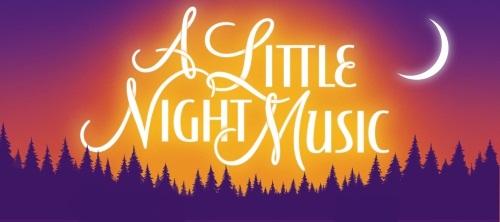
Musical
Musique: Stephen Sondheim • Paroles: Stephen Sondheim • Livret: Hugh Wheeler • Production originale: 20 versions mentionnées
Dispo: Résumé Synopsis Génèse Isnpiration Liste chansons
Vidéos:
Après Follies, échec commercial mais succès critique, Stephen Sondheim cherche une oeuvre à adapter, avec son complice Harold Prince. Comme il avoue ne pas lire beaucoup, il voit des films et pense à un moment à La règle du jeu de Jean Renoir. Mais son attention se focalise sur une comédie romantique d’Ingmar Bergman : Sourires d’une nuit d’été, qui obtint en 1956 le prix de « l’humour poétique » au Festival de Cannes. Ce film est lui-même inspiré de la pièce de Shakespeare Songe d’une nuit d’été. Notons, pour la petite histoire, que la sublime Eva Dahlbeck, interprète de Désirée, chante à deux reprises dans le film. Bergman accepte de céder les droits de l’oeuvre (à l’exception de son titre). Hugh Wheeler, d’origine britannique, se colle à l’intrigue. Il étoffe le personnage de la mère de Désirée et ajoute un personnage féminin : l’enfant de la diva n’est plus un bambin du nom de Fredrik, mais une adolescente : Frédérika. Le livret s’articulera autour de ce trio féminin, à trois âges de la vie. Le chiffre trois revient à plusieurs reprises puisque les trois temps de la valse sont favorisés par le compositeur, et que la nuit sourit trois fois… Un quintet, sorte de choeur antique, illustrera la satire en permettant au spectateur de bénéficier d’un certain recul.
Genèse: Original Broadway production A Little Night Music opened on Broadway at the Shubert Theatre on February 25, 1973, and closed on August 3, 1974 after 601 performances and 12 previews. It moved to the Majestic Theatre on September 17, 1973 where it completed its run. It was directed by Harold Prince with choreography by Patricia Birch and design by Boris Aronson. The cast included Glynis Johns (Desiree Armfeldt), Len Cariou (Fredrik Egerman), Hermione Gingold (Madame Armfeldt), Victoria Mallory, Judith Kahan, Mark Lambert, Laurence Guittard, Patricia Elliott, George Lee Andrews, and D. Jamin Bartlett. It won the New York Drama Critics' Circle Award and the Tony Award for Best Musical. United States tour A US national tour began on February 26, 1974 at the Forrest Theatre, Philadelphia, and ended on February 13, 1975 at the Shubert Theatre, Boston. Jean Simmons as Desiree Armfeldt, George Lee Andrews as Fredrik Egerman and Margaret Hamilton as Madame Armfeldt headed the cast. West End premiere The musical premiered in the West End at the Adelphi Theatre on April 15, 1975 and starred Jean Simmons, Joss Ackland, David Kernan, Liz Robertson, and Diane Langton, with Hermione Gingold reprising her role as Madame Armfeldt. It ran for 406 performances. During the run, Angela Baddeley replaced Gingold, and Virginia McKenna replaced Simmons. 1989 West End revival A revival opened in the West End on October 6, 1989 at the Piccadilly Theatre, directed by Ian Judge, designed by Mark Thompson, and choreographed by Anthony Van Laast. It starred Lila Kedrova as Madame Armfeldt, Dorothy Tutin as Desiree Armfeldt, Peter McEnery as Fredrick, and Susan Hampshire. The production ran for 144 performances, closing on February 17, 1990. 1995 London revival A revival by the Royal National Theatre opened at the Olivier Theatre on September 26, 1995. It was directed by Sean Mathias, with set design by Stephen Brimson Lewis, costumes by Nicky Gillibrand, lighting by Mark Henderson and choreography by Wayne McGregor. It starred Judi Dench (Desiree), Siân Phillips (Madame Armfeldt), Joanna Riding, Laurence Guittard and Patricia Hodge. The production closed on August 31, 1996. Dench received the Olivier Award for Best Actress in a Musical. 2008 London revival The third London revival ran at the Menier Chocolate Factory from November 22, 2008 until March 8, 2009. The production was directed by Trevor Nunn, with choreography by Lynne Page, sets and costumes by David Farley and new orchestrations by Jason Carr. The cast included Hannah Waddingham as Desiree, Alexander Hanson as Frederik, Jessie Buckley (Anne), Maureen Lipman (Mme. Armfeldt), Alistair Robins (the Count), Gabriel Vick (Henrik), Grace Link and Holly Hallam (shared role Fredrika) and Kasia Hammarlund (Petra). This critically acclaimed production transferred to the Garrick Theatre in the West End for a limited season, opening on March 28, 2009 running until July 25, 2009. This production transferred to Broadway on December 13, 2009, starring Catherine Zeta-Jones as Desiree and Angela Lansbury as Madame Armfeldt. Alexander Hanson again played Frederik. 2009 Broadway revival The 2008 Menier Chocolate Factory production opened on Broadway at the Walter Kerr Theatre in previews on November 24, 2009 and officially on December 13, 2009, with the same creative team. The original cast starred Angela Lansbury as Madame Armfeldt and, in her Broadway debut, Catherine Zeta-Jones as Desiree. Also featured were Alexander Hanson as Frederik, Ramona Mallory as Anne, Hunter Ryan Herdlicka as Henrik, Leigh Ann Larkin as Petra, Erin Davie as the Countess, Aaron Lazar as the Count, and Bradley Dean as Frid. Zeta-Jones won the Tony for Best Leading Actress in a Musical for 2010. The production temporarily closed on June 20, 2010 when the contracts of Zeta-Jones and Lansbury ended and resumed on July 13, with new stars Bernadette Peters as Desiree Armfeldt and Elaine Stritch as Madame Armfeldt. In an interview, Peters said that Sondheim had "proposed the idea to her this spring and urged the producers of the revival to cast her." Trevor Nunn directed rehearsals with the two new stars, and the rest of the original cast remained. Peters and Stritch extended their contracts until January 9, 2011, when the production closed with 20 previews and 425 regular performances. Before the production closed it recouped its initial investment.
Résumé: Durant un week-end dans la superbe propriété suédoise de Mme Armfeldt, des couples vont se défaire, se réunir, dans une comédie romantique acerbe. Désirée, l’actrice, désire faire sa vie avec son ancien amant, l’avocat Fredrik Egerman, actuellement l’époux d’une jeune vierge Anne. Cette dernière est éprise, sans le savoir, de Henrik, le fils de son mari. Henrik, austère, désire connaître les plaisirs de la chair avec la bonne Petra, qui tombe amoureuse d’un maître d’hôtel. Enfin, Charlotte, amie d’Anne et épouse de Carl-Magnus, un militaire actuel amant de Désirée, veut reconquérir son époux. Tout se remettra en place grâce aux stratagèmes conjugués des uns et des autres, et avec l’aide des sourires magiques d’une nuit d’été…
Création: 25/2/1973 - Shubert Theatre (Broadway) - représ.
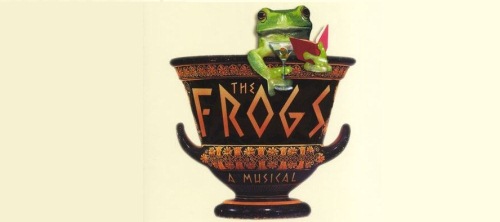
Musical
Musique: Stephen Sondheim • Paroles: Stephen Sondheim • Livret: Burt Shevelove • Production originale: 5 versions mentionnées
Dispo: Résumé Commentaire
Genèse:
Résumé: D'après l'œuvre d'Aristophane (405 av JC).
Création: 20/5/1974 - Yale University Swimming Pool (New Heaven) - représ.
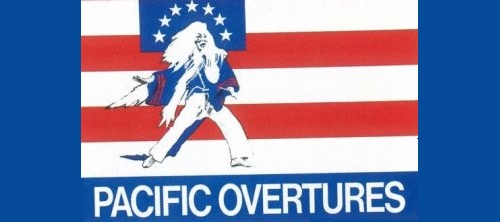
Musical
Musique: Stephen Sondheim • Paroles: Stephen Sondheim • Livret: John Weidman • Production originale: 8 versions mentionnées
Dispo: Résumé Synopsis Génèse Isnpiration Liste chansons
Genèse: Pacific Overtures opened on Broadway at the Winter Garden Theatre on January 11, 1976, and closed after 193 performances on June 27, 1976. Directed by Harold Prince, the choreography was by Patricia Birch, scenic design by Boris Aronson, costume design by Florence Klotz, and lighting design by Tharon Musser. The original cast recording was released originally by RCA Records and later on CD. This production was nominated for 10 Tony Awards, and won Best Scenic Design (Boris Aronson) and Best Costume Design (Florence Klotz). An off-Broadway production ran at the Promenade Theatre from October 25, 1984 for 109 performances, transferring from an earlier production at the York Theatre Company. Directed by Fran Soeder with choreography by Janet Watson, the cast featured Ernest Abuba and Kevin Gray. The European premiere was directed by Howard Lloyd-Lewis (Library Theatre, Manchester) at Wythenshawe Forum in 1986 with choreography by Paul Kerryson who subsequently directed productions in 1993 and 2006 at Leicester Haymarket Theatre. A major production of the show was mounted in London by the English National Opera in 1987. The production was recorded in its entirety, preserving nearly the entire libretto as well as the score. A critically acclaimed 2001 Chicago Shakespeare Theater production, directed by Gary Griffin,[5] transferred to the West End Donmar Warehouse, where it ran from June 30, 2003 until September 6, 2003 and received the 2003 Olivier Award for Best Musical Production. In 2002 the New National Theatre of Tokyo presented two limited engagements of their production, which was performed in Japanese with English supertitles. The production ran at Avery Fisher Hall, Lincoln Center from July 9, 2002 through July 13, and then at the Eisenhower Theater, Kennedy Center, from September 3, 2002 through September 8. A Broadway revival ran at Studio 54 from December 2, 2004 to January 30, 2005, directed by Amon Miyamoto and starring B.D. Wong as the Narrator and several members of the original cast. A new Broadway recording, with new (reduced) orchestrations by orchestrator Jonathan Tunick was released by PS Classics, with additional material not included on the original cast album.[4] The production was nominated for four Tony Awards, including Best Revival of a Musical. The Original broadway production was filmed and broadcast on Japanese television in 1976.
Résumé: A musical with book by John Weidman, Pacific Overtures traces the history of Japan from the first contact with America (via Commodore Matthew Perry) through the modern age. The "development" of the country is represented by two characters, Kayama Yasaemon, a traditional samurai, and his friend Manjiro, a fisherman who had been shipwrecked in Boston, where he embraced Western ways. As Japan becomes more Westernized, Kayama embraces the new culture while Manjiro rejects it, rediscovering his roots. All this is acted out against a backdrop of the greater changes in Japan, as the Japanese and the world powers all try to capitalize on the opening up of Japan.
Création: 11/1/1976 - Winter Garden Theatre (Broadway) - représ.

Musical
Musique: Jule Styne • Leonard Bernstein • Richard Rodgers • Stephen Sondheim • Paroles: Stephen Sondheim • Livret: *** Divers • Production originale: 12 versions mentionnées
Dispo: Commentaire Génèse Liste chansons
Genèse: The revue had its première on May 4, 1976 at London's Mermaid Theatre, where it ran for 59 performances. It subsequently transferred to Wyndham's Theatre and then the Garrick for a grand total of 806 performances. Ned Sherrin directed, but Sondheim also worked with the cast and made many suggestions. Hal Prince produced the Broadway version, and persuaded Actors' Equity Association to allow the original British cast to transfer with the show. The production, again directed by Sherrin, opened on April 18, 1977 at the Music Box Theatre, and later transferred to the now-demolished Morosco Theatre. Between the two venues, it ran for a total 384 performances and 6 previews. It is one of the few shows to have the distinction of its entire cast being nominated for Tony Awards (Best Featured Actor in a Musical and Best Featured Actress in a Musical). A subsequent 1978 U. S. national tour starred Martin, Larry Kert, Barbara Heuman, and Hermione Gingold as the Narrator. A London West End revival opened at the Venue Theatre on May 1, 2007, and closed June 23, 2007, after 62 performances and 4 previews. The cast included Abbie Osman, Alasdair Harvey and Josie Walker, with rotating narrators. The musical was directed by Hannah Chissick with musical staging by Adam Cooper. International Numerous international productions have been mounted, including a production in Ireland in 1996 which starred Rebecca Storm, Brendan O'Carroll as the Narrator with Susie Fenwick, Enda Markey and Sarah-Jane Bourne. A production at the Seymour Centre in Sydney, Australia ran in 2011, and starred Amelia Cormack, Margi De Ferranti, Enda Markey and Jessica Rowe as the narrator. This production toured Australia in 2012, with Rachael Beck and then Lucy Maunder replacing Amelia Cormack; Michael Falzon replacing Markey and Geraldine Turner replacing De Feranti. On Friday 20 April 2012, a gala performance of the show took place at Theatre Royal, Sydney. Headlined by Ruthie Henshall and starring an array of Australia's leading musical theatre talent including Rachael Beck, Geraldine Turner, Peter Cousens, Enda Markey - who also produced, Lucy Durack, Ben Lewis, Stephen Mahy, Amanda Muggleton, Michael Falzon, Virginia Gay and many more.
Résumé:
Création: 4/5/1976 - Mermaid Theatre (Londres) - représ.
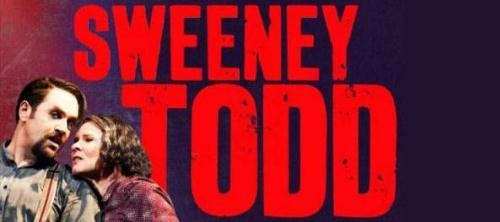
Musical
Musique: Stephen Sondheim • Paroles: Stephen Sondheim • Livret: Hugh Wheeler • Production originale: 34 versions mentionnées
Dispo: Résumé Synopsis Génèse Isnpiration Liste chansons
Genèse: Original Broadway production and tour The original production premiered on Broadway at the Uris Theatre on March 1, 1979 and closed on June 29, 1980 after 557 performances and 19 previews. Directed by Hal Prince and choreographed by Larry Fuller, the scenic design was by Eugene Lee, costumes by Franne Lee and lighting by Ken Billington. The cast included Angela Lansbury as Mrs. Lovett, Len Cariou as Todd, Victor Garber as Anthony, Sarah Rice as Johanna, Merle Louise as the Beggar Woman, Ken Jennings as Tobias, Edmund Lyndeck as Judge Turpin, Joaquin Romaguera as Pirelli, and Jack Eric Williams as Beadle Bamford. The production was nominated for nine Tony Awards, winning eight including Best Musical. Dorothy Loudon and George Hearn replaced Lansbury and Cariou on March 4, 1980. The first national US tour started on October 24, 1980, in Washington, D.C. and ended in August 1981 in Los Angeles, California. Lansbury was joined by Hearn and this version was taped during the Los Angeles engagement and broadcast on PBS on September 12, 1982. A North American tour started on February 23, 1982, in Wilmington, Delaware, and ended on July 17, 1982, in Toronto, Ontario. June Havoc and Ross Petty starred. Original London production The first London production opened on July 2, 1980, at the West End's Theatre Royal, Drury Lane, starring Denis Quilley and Sheila Hancock along with Andrew C. Wadsworth as Anthony, Mandy More as Johanna, Michael Staniforth as Tobias, Austin Kent as Judge Turpin, Dilys Watling as the Beggar Woman, David Wheldon-Williams as Beadle Bamford, Oz Clarke as Jonas Fogg, and John Aron as Pirelli. The show ran for 157 performances. Despite receiving mixed reviews, the production won the Olivier Award for Best New Musical in 1980. 1989 Broadway revival The first Broadway revival opened on September 14, 1989 at the Circle in the Square Theatre, and closed on February 25, 1990 after 189 performances and 46 previews. It was produced by Theodore Mann, directed by Susan H. Schulman, with choreography by Michael Lichtefeld. The cast featured Bob Gunton (Sweeney Todd), Beth Fowler (Mrs. Lovett), Eddie Korbich (Tobias Ragg), Jim Walton (Anthony Hope) and David Barron (Judge Turpin). The production was originally produced Off-Off-Broadway by the York Theatre Company at the Church of the Heavenly Rest from March 31, 1989 to April 29, 1989. This production received four Tony Award nominations: for Best Revival of a Musical, Best Actor in a Musical, Best Actress in a Musical and Best Direction of a Musical, but failed to win any. 1993 West End revival In 1993, the show received its first West End revival at the National Theatre. The production opened originally at the Cottesloe Theatre on June 2, 1993, and later transferred to the Lyttleton Theatre on December 16, 1993, playing in repertory and closing on June 1, 1994. The show's design was slightly altered to fit a proscenium arch theatre space for the Lyttleton Theatre. The director was Declan Donnellan and the Cottesloe Theatre production starred Alun Armstrong as Todd and Julia McKenzie as Mrs. Lovett, with Adrian Lester as Anthony, Barry James as Beadle Bamford and Denis Quilley as Judge Turpin. Quilley had originated the title role in the original London production in 1980. When the show transferred, Quilley replaced Armstrong in the title role. Sondheim praised Donnellan for the "small 'chamber' approach to the show which was the composer's original vision for the piece." This production received Olivier Awards for Best Musical Revival, Best Actor in a Musical (Armstrong) and Best Actress in a Musical (McKenzie), as well as nominations for Best Director and two for Best Supporting Performance in a musical. 2004 London revival In 2004, John Doyle directed a revival of the musical at the Watermill Theatre in Newbury, England, running from July 27, 2004 until October 9, 2004. This production subsequently transferred to the West End's Trafalgar Studios and then the Ambassadors Theatre. This production was notable for having no orchestra, with the 10-person cast playing the score themselves on musical instruments that they carried onstage. This marked the first time in nearly ten years that a Sondheim show had been presented in the commercial West End. It starred Paul Hegarty as Todd, Karen Mann as Mrs. Lovett, Rebecca Jackson as The Beggar Woman, Sam Kenyon as Tobias, Rebecca Jenkins as Johanna, David Ricardo-Pearce as Anthony and Colin Wakefield as Judge Turpin. This production closed February 5, 2005. 2005 Broadway revival A version of the John Doyle West End production transferred to Broadway, opening on November 3, 2005 at the Eugene O'Neill Theatre with a new cast, all of whom played their own instruments, as had been done in London. The cast consisted of: Patti LuPone (Mrs. Lovett/Tuba/Percussion), Michael Cerveris (Todd/Guitar), Manoel Felciano (Tobias/Violin/Clarinet/Piano), Alexander Gemignani (Beadle/Piano/Trumpet), Lauren Molina (Johanna/Cello), Benjamin Magnuson (Anthony/Cello/Piano), Mark Jacoby (Turpin/Trumpet/Percussion), Donna Lynne Champlin (Pirelli/Accordion/Flute/Piano), Diana DiMarzio (Beggar Woman/Clarinet) and John Arbo (Fogg/Double bass). The production ran for 384 performances and was nominated for six Tony Awards, winning two: Best Direction of a Musical for Doyle and Best Orchestrations for Sarah Travis who had reconstructed Jonathan Tunick's original arrangements to suit the ten-person cast and orchestra. Because of the small scale of the musical, it cost $3.5 million to make, a sum small in comparison to many Broadway musicals and recouped in nineteen weeks.[15] A national tour based on Doyle's Broadway production began on August 30, 2007 with Judy Kaye (who had temporarily replaced LuPone in the Broadway run) as Mrs. Lovett and David Hess as Todd. Alexander Gemignani also played the title role for the Toronto run of the tour in November 2007. 2012 London revival Michael Ball and Imelda Staunton starred in a new production of the show which played at The Chichester Festival Theatre, running from 24 September to 5 November 2011. Directed by Jonathan Kent, the cast included Ball as Todd, Staunton as Mrs. Lovett, James McConville as Tobias, John Bowe as Judge Turpin, Robert Burt as Pirelli, Luke Brady as Anthony, Gillian Kirkpatrick as Lucy Barker, Lucy May Barker as Johanna and Peter Polycarpou as Beadle Bamford. It notably takes place in the 1930s instead of 1846 and restored the oft-cut song "Johanna (Mea Culpa)". The production received positive reviews from both critics and audience members and transferred to the Adelphi Theatre in the West End in 2012 for a limited run from March 10 until September 22. The West End transfer received six Laurence Olivier Award nominations of which it won the three; Best Musical Revival, Best Actor in a Musical for Ball and Best Actress in a Musical for Staunton.
Résumé: This musical thriller is set in darkest Victorian England and tells the infamous tale of Sweeney Todd - the demon barber of Fleet Street - who seeks revenge when a malicious Judge frames him, ravages his young wife and kidnaps his daughter Johanna. Together with Mrs Lovett - the enterprising proprietress of the pie shop downstairs - the pair form an innovative business partnership cooking up blood-curdling results.
Création: 1/3/1979 - Gershwin Theatre (Broadway) - représ.
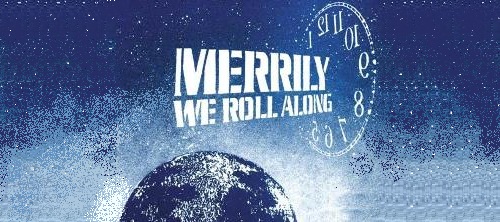
Musical
Musique: Stephen Sondheim • Paroles: Stephen Sondheim • Livret: George Furth • Production originale: 4 versions mentionnées
Dispo: Résumé Synopsis Génèse Liste chansons
Genèse: Background and original production Prince's wife, Judy, had been "nagging" him to do a musical about teenagers, when he recalled the play Merrily We Roll Along. Sondheim said that since the play was about friendships, he wrote the songs to be interconnected. The original choreographer, Ron Field, wanted to work with Prince. The decision was made to cast teenagers, and to have tryouts in New York rather than out-of-town. The tryouts, beginning on October 8, 1981, had a poor reception, with audiences walking out. On October 21, 1981 The New York Times reported that the original leading man, James Weissenbach, had been replaced by Jim Walton and the Broadway opening had been postponed. Field was replaced with choreographer Larry Fuller. The opening was delayed a second time, from November 9 to November 16, 1981. The Broadway production, directed by Prince and choreographed by Fuller, opened on November 16, 1981 at the Alvin Theatre. The show opened to mostly negative reviews. While the score was widely praised, critics and audiences alike felt that the book was problematic and the themes left a sour taste in their mouths. Hampered by the several critical reviews published prior to its official opening, as well as more negative ones published afterwards, it ran for only 16 performances and 52 previews. In his New York Times review Frank Rich wrote "As we all should probably have learned by now, to be a Stephen Sondheim fan is to have one's heart broken at regular intervals." Clive Barnes wrote, "Whatever you may have heard about it – go and see it for yourselves. It is far too good a musical to be judged by those twin kangaroo courts of word of mouth and critical consensus." At the time, the musical was staged in such a way that the audience was confused and had trouble following what was going on in the story. Consequently, the actors all ended up infamously wearing sweatshirts with their characters' names on the front. The cast included Jim Walton (Franklin Shepard), Lonny Price (Charley Kringas), Ann Morrison (Mary), Terry Finn (Gussie), Jason Alexander (Joe), Sally Klein (Beth), Geoffrey Horne (Franklin Shephard age 43), David Loud (Ted), Daisy Prince (Meg), Liz Callaway (Nightclub Waitress), Tonya Pinkins (Gwen), and Giancarlo Esposito (Valedictorian). Rosie O'Donnell auditioned; she was 18 years old. Throughout the years, with Furth and Sondheim's blessing, the musical has been staged with numerous changes. Sondheim has contributed new songs to several of the show's incarnations, most notably "Growing Up". San Diego A production directed by James Lapine opened on June 16, 1985 at San Diego's La Jolla Playhouse, where it ran for 24 performances. The cast included John Rubinstein as Franklin Shepard, Chip Zien as Charley Kringas, Marin Mazzie as Beth and Heather MacRae as Mary Flynn. An Arena Stage production, directed by Douglas C. Wager and choreographed by Marcia Milgrom Dodge, opened on January 30, 1990 at Washington, D.C.'s Kreeger Theater, where it ran slightly more than two months. The cast included Victor Garber, David Garrison, and Becky Ann Baker. In his review of the Arena Stage production, Rich noted that "Many of the major flaws of the 1981 Merrily, starting with its notorious gymnasium setting, have long since been jettisoned or rectified in intervening versions produced in La Jolla, Calif., and in Seattle." He called the score "exceptional." Off-West End A revised production, directed by Paul Kerryson, with orchestrations by Jonathan Tunick and musical direction by Julian Kelly, opened on April 14, 1992 at the Haymarket Theatre, Leicester, where it ran for three weeks. The cast included Michael Cantwell (Franklin), Maria Friedman (Mary), and Evan Pappas (Charlie), along with Jacqueline Dankworth, Louise Gold and Gareth Snook. A cast recording was released on a single CD in the UK in 1994 and, with extended cuts and dialogue, as a double-CD set in the US in 1997. Off-Broadway An Off-Broadway revival, directed by Susan H. Schulman, opened on May 26, 1994 at the York Theatre in St. Peter's Church, where it ran for 54 performances. The cast included Malcolm Gets, Ron Butler and Michele Pawk. A cast recording was released by Varèse Sarabande. West End The West End premiere, directed by Michael Grandage, opened on December 11, 2000 at the Donmar Warehouse, where it ran for 71 performances and eight previews. The cast included Mary Stockley. The production won Laurence Olivier Awards for Best Musical, Best Actor, and Best Actress. The London Menier Chocolate Factory presented a revival directed by Maria Friedman in November 2012, transferring to the Harold Pinter Theatre in London's West End on 1 May 2013. This production won the Peter Hepple Award for Best Musical in the 2012 Critics' Circle Theatre Awards.
Résumé: Tells of a composer's descent from decent and virtuous youth to wayward and greedy middle-age. The show is given an extra twist by being told in reverse chronology. It is 1980. Hollywood producer and songwriter, Franklin Shepard, addresses the graduating class of his former high school. His world-weary advice provokes the students into presenting the cautionary tale of Franklin's extraordinary life and career. Together with his best friends, Mary and Charley, Franklin travels back to his own graduation in 1957.
Création: 16/11/1981 - Neil Simon Theatre (Broadway) - représ.
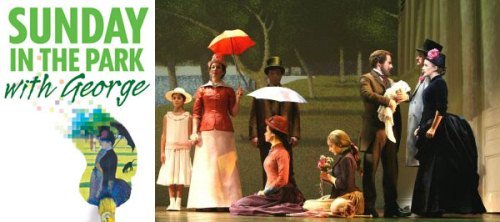
Musical
Musique: Stephen Sondheim • Paroles: Stephen Sondheim • Livret: James Lapine • Production originale: 11 versions mentionnées
Dispo: Résumé
Genèse:
Résumé: The musical celebrates the art of creation and the creation of art. In the first half, set in 1884, the people - and the animals - in the painting come to life in a world where, for artist Georges, art comes before love, before everything. In the second half, set a century later, Seurat's great-grandson is searching for inspiration amidst the unforgiving world of contemporary art in New York.
Création: 2/5/1984 - Booth Theatre (Broadway) - représ.
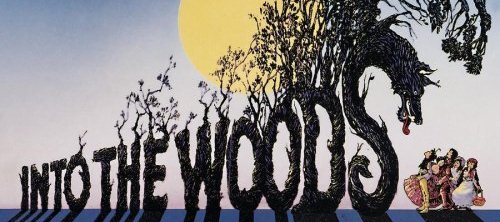
Musical
Musique: Stephen Sondheim • Paroles: Stephen Sondheim • Livret: James Lapine • Production originale: 12 versions mentionnées
Dispo: Résumé Synopsis Commentaire Génèse Liste chansons
Genèse: Original Broadway production Into the Woods premiered at the Old Globe Theatre in San Diego, California, on December 4, 1986 and ran for 50 performances under the direction of James Lapine. The majority of the performers from that production appeared in the Broadway cast but John Cunningham, who played the Narrator, Wolf and Steward and George Coe, as the Mysterious Man and Cinderella's Father were replaced by Tom Aldredge, who played the Narrator and Mysterious Man. Kenneth Marshall as Cinderella's Prince was replaced by Robert Westenberg (who also played the Wolf), LuAnne Ponce, who played Little Red Ridinghood, was replaced by Danielle Ferland, Ellen Foley, the Witch, was replaced by Bernadette Peters. Kay McClelland, who played both Rapunzel and the Stepsister Florinda, stayed with the cast but only played Florinda, Rapunzel being played by Pamela Winslow. The musical opened on Broadway at the Martin Beck Theatre on November 5, 1987, and closed on September 3, 1989 after 765 performances. It starred Bernadette Peters, Joanna Gleason, Chip Zien, Kim Crosby, Ben Wright, Danielle Ferland, Chuck Wagner, Merle Louise, Tom Aldredge, and Robert Westenberg. The musical was directed by James Lapine, with musical staging by Lar Lubovitch, settings by Tony Straiges, lighting by Richard Nelson, and costumes by Ann Hould-Ward (based on original concepts by Patricia Zipprodt and Ann Hould-Ward). The original production won the 1988 New York Drama Critics' Circle Award and the Drama Desk Award for Best Musical, and the original cast recording won a Grammy Award. The show was nominated for ten Tony Awards, and won three: Best Score (Stephen Sondheim), Best Book (James Lapine) and Best Actress in a Musical (Joanna Gleason). Peters left the show after almost five months due to a prior commitment to film the movie Slaves of New York. The Witch was then played by: Betsy Joslyn (from March 30, 1988); Phylicia Rashād (from April 14, 1988); Betsy Joslyn (from July 5, 1988); Nancy Dussault (from December 13, 1988); and Ellen Foley (from August 1, 1989 until the closing). Other cast replacements included Dick Cavett as the Narrator (as of July 19, 1988) (for a temporary engagement after which Tom Aldredge returned), Edmund Lyndeck as the Mysterious Man, Patricia Ben Peterson as Cinderella, LuAnne Ponce returning to the role of Little Red Ridinghood, Jeff Blumenkrantz as Jack, Marin Mazzie as Rapunzel (as of March 7, 1989) and Kay McClelland, Lauren Mitchell, Cynthia Sikes and Mary Gordon Murray as the Baker's Wife. In May 1989, the original cast (with the exception of Jean Louisa Kelly in the minor role of Snow White) reunited for one performance, which was filmed and broadcast on U.S. public television on March 20, 1991. This version (which featured pick-up shots filmed in an empty theater) has since been released on DVD. Tenth Anniversary benefit performances of this production were held on November 9, 1997 at The Broadway Theatre (New York), with most of original cast. Original cast understudies Chuck Wagner and Jeff Blumenkrantz played Cinderella's Prince/Wolf and The Steward in place of Robert Westenburg and Philip Hoffmann and Jonathan Dokuchitz (who joined the broadway production as an understudy in 1989) played Rapunzel's Prince in place of Mr. Wagner. This concert featured the duet "Our Little World," written for the first London production of the show. 1988 US tour A United States tour began on November 22, 1988 with Cleo Laine playing the Witch, replaced by Betsy Joslyn in May 1989. Rex Robbins played the Narrator and Mysterious Man, Charlotte Rae played Jack's Mother, and the Princes were played by Chuck Wagner and Douglas Sills. The 10-month tour played cities around the country, such as Fort Lauderdale, Florida, Los Angeles, and Atlanta. The tour ran at the John F. Kennedy Center for the Performing Arts from June 1989 to July 16, 1989, with the reviewer for The Washington Post writing: "his lovely score -- poised between melody and dissonance -- is the perfect measure of our tenuous condition. The songs invariably follow the characters' thinking patterns, as they weigh their options and digest their experience. Needless to say, that doesn't make for traditional show-stoppers. But it does make for vivacity of another kind. And Sondheim's lyrics...are brilliant.... I think you'll find these cast members alert and engaging." Original London production The original West End production opened on September 25, 1990 at the Phoenix Theatre and closed on February 23, 1991 after 197 performances. It was directed by Richard Jones, and produced by David Mirvish, with choreography by Anthony Van Laast, costumes by Sue Blane and orchestrations by Jonathan Tunick. The cast featured Julia McKenzie as the Witch, Ian Bartholomew as the Baker, Imelda Staunton as the Baker's Wife and Clive Carter as the Wolf/Cinderella's Prince. The show received seven Olivier Award nominations in 1991, winning for Best Actress in a Musical (Staunton) and Best Director of a Musical (Jones). Some story aspects and one song that were cut from the original production were added to the London production. The song "Our Little World" was added. This song was a duet sung between the Witch and Rapunzel giving further insight into the care the Witch has for her self-proclaimed daughter and the desire Rapunzel has to see the world outside of her tower. The overall feel of the show was a lot darker to that of the original Broadway production. Critic Michael Billington wrote "But the evening's triumph belongs also to director Richard Jones, set designer Richard Hudson and costume designer Sue Blane who evoke exactly the right mood of haunted theatricality. Old-fashioned footlights give the faces a sinister glow. The woods themselves are a semi-circular, black-and-silver screen punctuated with nine doors and a crazy clock: they achieve exactly the 'agreeable terror' of Gustave Dore's children's illustrations. And the effects are terrific: doors open to reveal the rotating magnified eyeball or the admonitory finger of the predatory giant." 1998 London revival A new intimate production of the show opened (billed as the first London revival) at the Donmar Warehouse on 16 November 1998, closing on 13 February 1999. This revival was directed by John Crowley and designed by his brother, Bob Crowley. The cast included Clare Burt as the Witch, Nick Holder as the Baker, Sophie Thompson as the Baker's Wife, Jenna Russell as Cinderella, Sheridan Smith as Little Red Ridinghood and Frank Middlemass as the Narrator/Mysterious Man. Russell later appeared as the Baker's Wife in the 2010 Regent's Park production. Thompson won the 1999 Olivier Award for Best Actress in a Musical for her performance, while the production itself was nominated for Outstanding Musical Production. 2002 Broadway revival A revival opened at the Ahmanson Theatre in Los Angeles, running from February 1, 2002 to March 24, 2002. This production was directed and choreographed, with the same principal cast, which later ran on Broadway. The 2002 Broadway revival, directed by James Lapine and choreographed by John Carrafa, began previews on April 13, 2002 and opened April 30, 2002 at the Broadhurst Theatre, closing on December 29 after a run of 18 previews and 279 regular performances. It starred Vanessa L. Williams as the Witch, John McMartin as the Narrator, Stephen DeRosa as the Baker, Kerry O'Malley as the Baker's Wife, Gregg Edelman as Cinderella's Prince/Wolf, Christopher Sieber as Rapunzel's Prince/Wolf, Molly Ephraim as Little Red Ridinghood, Adam Wylie as Jack and Laura Benanti as Cinderella. Judi Dench provided the pre-recorded voice of the Giant. Lapine revised the script slightly for this production, with a cameo appearance of the Three Little Pigs restored from the earlier San Diego production. Other changes, apart from numerous small dialogue changes, included the addition of the song "Our Little World," a duet for the Witch and Rapunzel written for the first London production, the addition of a second wolf in the song "Hello Little Girl" who competes for Little Red's attention with the first Wolf, the portrayal of Jack's cow by a live performer (Chad Kimball) in an intricate costume and new lyrics were written for "The Last Midnight," now sung by the Witch as a menacing lullaby to the Baker's baby. The revival won the Tony Awards for the Best Revival of a Musical and Best Lighting Design. This Broadway revival wardrobe is on display at the Costume World Broadway Collection in South Florida. London Royal Opera House, 2007 A revival at the Royal Opera House's Linbury Studio in Covent Garden had a limited run from June 14 through June 30, 2007 followed by a short stint at The Lowry theatre, Salford Quays, Manchester between 4–7 July. The production mixed Opera singers, Musical Theatre actors as well as Film and television actors; including Anne Reid as Jack's Mother and Gary Waldhorn as the Narrator. The production itself, directed by Will Tuckett, was met with mixed reviews; although there were clear stand out performances. The production completey sold out three weeks before opening. As this was an 'Opera' production, the show and its performers were overlooked for the 'Musical' nominations in the 2008 Olivier Awards. This production featured Suzie Toase (Little Red), Peter Caulfield (Jack), Beverley Klein (Witch), Anna Francolini (Baker's Wife), Clive Rowe (Baker), Nicholas Garrett (wolf) and Lara Pulver (Lucinda). This was the second Sondheim musical to be staged by the Opera House, following 2003's Sweeney Todd. Regent's Park Open Air Theatre, 2010 The Olivier Award winning Regent’s Park Open Air Theatre production, directed by Timothy Sheader and choreographed by Liam Steel, ran for a six week limited season from 6 August to 11 September 2010. The cast included Hannah Waddingham as the Witch, Jenna Russell as the Baker’s wife, Helen Dallimore as Cinderella, and Judi Dench as the recorded voice of the Giant. Gareth Valentine was the Musical Director. The musical was performed outdoors in a wooded area. Whilst the book remained mostly unchanged, the subtext of the plot was dramatically altered by casting the role of the Narrator as a young school boy lost in the woods following a family argument – a device used to further illustrate the musical’s themes of parenting and adolescence. The production opened to wide critical acclaim, much of the press commenting on the effectiveness of the open air setting. The Telegraph reviewer, for example, wrote: "It is an inspired idea to stage this show in the magical, sylvan surroundings of Regent’s Park, and designer Soutra Gilmour has come up with a marvellously rickety, adventure playground of a set, all ladders, stairs and elevated walkways, with Rapunzel discovered high up in a tree." The New York Times reviewer commented: "The natural environment makes for something genuinely haunting and mysterious as night falls on the audience..." Stephen Sondheim attended twice, reportedly extremely pleased with the production. The production also won the Laurence Olivier Award for Best Musical Revival and Michael Xavier, who played Cinderella's Prince and the Wolf, was nominated for the Laurence Olivier Award for Best Performance in a Supporting Role in a Musical. The production was recorded in its entirety and released for public download through Digital Theatre, an online video production company. Public Theater, New York, 2012 The Regent's Park Open Air Theatre production transferred to the Public Theater's 2012 summer series of free performances Shakespeare in the Park at the Delacorte Theater in Central Park, New York, with an American cast as well as new designers. Sheader again is the director and Steel serves as co-director and choreographer. Performances were originally to run from July 24 (delayed from July 23 due to the weather) to August 25, 2012, but the show was extended till September 1, 2012. The cast included Amy Adams as The Baker's Wife, Donna Murphy as The Witch, Denis O'Hare as The Baker, Chip Zien as the Mysterious Man/Cinderella's Father, Jack Broderick as the young Narrator, Gideon Glick as Jack, Cooper Grodin as Rapunzel’s Prince, Ivan Hernandez as Cinderella’s Prince/Wolf, Tina Johnson as Granny, Josh Lamon as the Steward, Jessie Mueller as Cinderella, Laura Shoop as Cinderella’s Mother, Tess Soltau as Rapunzel and Glenn Close as the Voice of the Giant. The set was a "collaboration between original Open Air Theatre designer Soutra Gilmour and...John Lee Beatty, [and] rises over 50 feet in the air, with a series of tree-covered catwalks and pathways." The production was dedicated to Nora Ephron, who died earlier in 2012. In February 2012 and in May 2012, reports of a possible Broadway transfer surfaced with the production's principal actors in negotiations to reprise their roles. In January 2013, it was announced that the production will not transfer to Broadway due to scheduling conflicts.
Résumé: The story of a baker and his wife who will be granted their wish for a child if they can deliver Cinderella's slipper, Red Riding Hood's cape, Rapunzel's long hair and Jack's cow to the wicked witch.
Création: 5/11/1987 - Al Hirschfeld Theatre (Broadway) - représ.
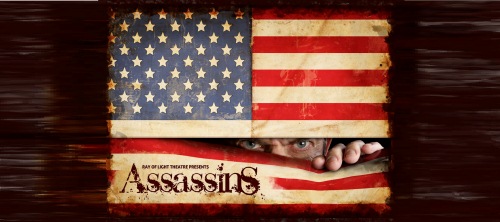
Musical
Musique: Stephen Sondheim • Paroles: Stephen Sondheim • Livret: John Weidman • Production originale: 10 versions mentionnées
Dispo: Résumé Synopsis Commentaire Génèse Liste chansons
The anachronistic show explores the lives of the nine presidential assassins and would-be assassins, weaving together fictional scenes where the characters interact among each other with real-life events. The musical uses the premise of a murderous carnival game to produce a revue-style portrayal of men and women who attempted (successfully or otherwise) to assassinate Presidents of the United States. The music varies to reflect the popular music of the eras depicted.
Genèse: As a panelist at producer Stuart Ostrow's Musical Theater Lab, Sondheim read a script by playwright Charles Gilbert. Sondheim asked Gilbert for permission to use his idea. Gilbert consented and offered to write the book; but Sondheim declined, having already had collaborator John Weidman in mind. Weidman had written the book for Pacific Overtures and would work with Sondheim again on Road Show. Assassins opened Off-Broadway at Playwrights Horizons on December 18, 1990, and closed on February 16, 1991 after 73 performances. Directed by Jerry Zaks the cast included Victor Garber, Terrence Mann, Patrick Cassidy, Debra Monk, Greg Germann, and Annie Golden. According to the Los Angeles Times, "The show has been sold out since previews began, reflecting the strong appeal of Sondheim's work among the theater crowd." Frank Rich in his New York Times review wrote "Assassins will have to fire with sharper aim and fewer blanks if it is to shoot to kill." On October 29, 1992, Assassins opened in London at the Donmar Warehouse with direction by Sam Mendes and a cast that included Henry Goodman as Charles Guiteau and Louise Gold as Sara Jane Moore. The show ran for 76 performances, closing on January 9, 1993. Roundabout Theater Company's Broadway production was originally scheduled for 2001 but was postponed to April 22, 2004, because the content was sensitive in light of the events of September 11, 2001. After 101 performances at Studio 54, Assassins closed on July 18, 2004. Directed by Joe Mantello, with musical staging by Jonathan Butterell, Neil Patrick Harris starred in the roles of The Balladeer and Lee Harvey Oswald, with Marc Kudisch in an extended role as The Proprietor. Michael Cerveris played John Wilkes Booth, for which he received a Tony Award. The 2004 production was noted for a coup de théâtre: the Zapruder film of the death of John F. Kennedy projected onto Lee Harvey Oswald's t-shirt. Other professional productions have included a 2006 production at Crucible Theatre, Sheffield, a 2008 production which ran from January 23 to February 2, 2008, at the Landor Theatre, London, and a production at the Union Theatre in Southwark, London, in July 2010. The South African premiere opened in December 2008 as the inaugural production of the NewSpace Theatre in Cape Town. This production was directed by Fred Abrahamse with a South African cast including Marcel Meyer as John Wilkes Booth, Riaan Norval as Lee Harvey Oswald, David Dennis as Charles J. Guiteau and Anthea Thompson as Sara Jane Moore. The Los Angeles premiere opened in 1994 at the Los Angeles Theatre Center and included Patrick Cassidy (the original Balladeer) playing Booth, and Alan Safier as Guiteau. A 2010 production in Toronto by BirdLand Theatre and Talk is Free Theatre won the Dora Mavor Moore Award for Outstanding Production in the Musical Theatre Division.
Résumé: Les auteurs évoquent les hommes et les femmes qui ont assassiné (ou tenté d'assassiner) un président des États-Unis. La musique s'adapte aux styles musicaux des différentes époques évoquées. Les assassins sont: Leon Czolgosz (1873 – 1901) : assassin de William McKinley (1843 – 1901) / John Hinckley (né en 1955) : tentative d'assassinat sur Ronald Reagan (1911 – 2004) le 30 mars 1981 / Charles Guiteau (1841 – 1882) : assassin de James Garfield (1831 – 1881) / Giuseppe Zangara (1900 – 1933) : tentative d'assassinat sur Franklin D. Roosevelt (1882 – 1945) le 15 février 1933 / Samuel Byck (1930 – 1974) : tentative d'assassinat sur Richard Nixon (1913 – 1994) le 22 février 1974 / Lynette Fromme (née en 1948) : tentative d'assassinat sur Gerald Ford (1913 – 2006) le 5 septembre 1975. / Sara Jane Moore (née en 1930) : tentative d'assassinat sur Gerald Ford le 22 septembre 1975. / John Wilkes Booth (1838 – 1865) : assassin d'Abraham Lincoln (1809 – 1865)
Création: 18/12/1990 - Playwrights Horizons (Broadway (Off)) - représ.

Musical
Musique: Stephen Sondheim • Paroles: Stephen Sondheim • Livret: James Lapine • Production originale: 10 versions mentionnées
Dispo: Résumé Synopsis Génèse Liste chansons
Genèse: The story was originally based on a 19th-century novel by Iginio Ugo Tarchetti, an experimental Italian writer who was prominently associated with the Scapigliatura movement. His book Fosca was a fictionalized recounting of an affair he'd once had with an epileptic woman when he was a soldier. Sondheim first came up with the idea of writing a musical when he saw the Italian film in 1983: As Fosca started to speak and the camera cut back to her, I had my epiphany. I realized that the story was not about how she is going to fall in love with him, but about how he is going to fall in love with her . . . at the same time thinking, "They're never going to convince me of that, they're never going to pull that off," all the while knowing they would, that Scola wouldn't have taken on such a ripely melodramatic story unless he was convinced that he could make it plausible. By the end of the movie, the unwritten songs in my head were brimming and I was certain of two things. First, I wanted to make it into a musical, the problem being that it couldn't be a musical, not even in my nontraditional style, because the characters were so outsized. Second, I wanted James Lapine to write it; he was a romantic, he had a feel for different centuries and different cultures, and he was enthusiastically attracted to weirdness. As it turned out, Lapine was already exploring the idea of adapting Muscle, a memoir by Sam Fussell, for the musical stage. Together, they came up with the idea of a pair of double-billing one acts. Lapine wrote a couple of scenes and Sondheim had just started working on the opening number when he began to feel that his musical style was unsuitable for Muscle. The piece were contemporary and, in his opinion, required a score reflecting pop sensibilities. He called up Lapine and suggested that he find another songwriter, perhaps William Finn, and include it as a companion piece. Meanwhile, they continued to work on Passion and as the piece grew, they found that it was enough to fill out an entire evening of theatre. Muscle was eventually shelved. Original Broadway Production The role of Fosca was originally offered to Patti LuPone, but she turned it down to star in Sunset Boulevard in the West End. After 52 previews Passion opened on Broadway at the Plymouth Theatre on May 9, 1994 and closed on January 7, 1995. Directed by James Lapine, the cast starred Jere Shea as Giorgio, Donna Murphy as Fosca and Marin Mazzie as Clara. Scenic Design was by Adrianne Lobel, Costume Design by Jane Greenwood, Lighting Design by Beverly Emmons, and orchestrations by Jonathan Tunick. This production was filmed shortly after closing and televised on the Public Broadcasting Service "American Playhouse" on September 8, 1996. (It was released on DVD in 2003 by Image Entertainment.) The musical ran a total of 280 performances, making it the shortest-running musical ever to win the Tony Award for Best Musical. Original London Production The show opened in the West End, with significant musical and script revisions, at the Queen's Theatre in 1996. Directed by Jeremy Sams, the cast featured Michael Ball as Giorgio, Helen Hobson as Clara, and Maria Friedman as Fosca (Friedman had previously appeared in several Sondheim musicals in the UK). The production ran for 232 performances. A recording was later made of the show performed in concert, with nearly all of the original London cast recreating their roles and preserving the musical changes from the earlier production. 2010 London Revival A production at the Donmar Warehouse in London, as part of Stephen Sondheim's 80th birthday celebrations, opened on September 10, 2010 in previews, with the official opening September 21, running through November 27. The director is Donmar associate director Jamie Lloyd, and the cast included Argentine actress Elena Roger, as well as Scarlett Strallen and David Thaxton. This production won the Evening Standard Awards, Best Musical Award. David Thaxton won the Olivier Award for Best Actor in a Musical. 2013 Off-Broadway Revival The show was mounted at the East Village-based Classic Stage Company, starring Judy Kuhn as Fosca, Melissa Errico as Clara and Ryan Silverman as Giorgio. Known primarily for their stagings of classical plays, Passion is the only musical that the theatre has ever produced. The production was helmed by John Doyle and took a minimalist approach to the piece, though there were no instruments onstage. The run was extended through April 2013 and a two-disc cast recording is set to be released in July from PS Classics. (Rebecca Luker, who played the role of Clara in the Kennedy Center's Sondheim Celebration production, will be replacing the ill Errico on this recording)
Résumé: Giorgio is a beautiful soldier, seperated from his loving (though married) mistress Clara and the object of the affections of Fosca, his Colonel's ugly and sickly cousin.
Création: 9/5/1994 - Gerald Schoenfeld Theatre (Broadway) - représ.
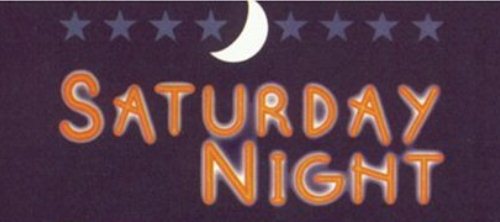
Musical
Musique: Stephen Sondheim • Paroles: Stephen Sondheim • Livret: Julius J. Epstein • Philip G. Epstein • Production originale: 6 versions mentionnées
Dispo: Résumé Génèse Liste chansons
Genèse: Saturday Night was scheduled to open in the 1954-1955 Broadway season. Announcements of the production appeared in the New York Times, and auditions were held in mid-1955, following some revisions to the music brought about by backers' auditions. In the summer of 1955, it appeared that Saturday Night would be Sondheim's musical debut on Broadway that fall. However, in August 1955, lead producer Lemuel Ayers died, leaving the production with little morale and even less cash. The production was scrapped, and the musical material shelved. Although a handful of songs from the musical have appeared in revues and on Sondheim compilation albums, the score as a whole went unperformed until 1997. Productions The Stephen Sondheim Society supported the first ever fully staged performance of the musical at the University of Birmingham, having been given permission to stage the show by Sondheim himself. The production was overseen by Professor Stephen Banfield who, also with permission from Sondheim, orchestrated the show for full band from the existing piano scores. Unfortunately, Sondheim was unable to attend but sent his best wishes to all involved. It was then repeated, in a concert version, the following year at the Bridewell Theatre, London, with Sondheim in attendance. During the post-show Q & A session, one of the members of The Stephen Sondheim Society asked Mr. Sondheim if he would now allow the show to be performed publicly. He agreed to think about it having previously always said 'no!' and Carol Metcalfe, Artistic Director of The Bridewell Theatre, immediately volunteered to stage it. Directed by Carol Metcalfe and Clive Paget, Saturday Night opened at the Bridewell Theatre on December 17, 1997 and closed on January 24, 1998 after 38 performances. A cast recording was made, distributed by First Night (UK) and RCA Victor (US). Following that production, the show had its US premiere with the Pegasus Players in Chicago. It opened at the O'Rourke Center for the Performing Arts, Truman College, Chicago, on May 19, 1999 and closed on July 18, 1999. Gary Griffin directed, with choreography by Marc Robin. Sondheim wrote two new song/scenes, "Delighted, I'm Sure" and "Montana Chem". The original book was edited by Sondheim, and there were new orchestrations by Jonathan Tunick. Interestingly the copyright date for "Delighted, I'm Sure" is 1954 by Sondheim. The other songs have copyright dates from 1973 (Tribute show) to 1999 (Chicago production) and are all by music publishers. The New York premiere was at the Off-Broadway Second Stage Theatre on February 17, 2000, where it ran until March 26, 2000, for 45 performances. The Second Stage production was directed and choreographed by Kathleen Marshall, and featured David Campbell (Gene), Lauren Ward (Helen), Natascia Diaz (Florence), Christopher Fitzgerald (Bobby), and Andrea Burns (Celeste). This production won the Drama Desk Award for Outstanding Lyrics. A recording was made with this original New York cast, released on June 20, 2000 by Nonesuch (ASIN: B00004TG64). When asked his reaction to seeing Saturday Night performed in New York after 40 years, Sondheim replied, "I don't have any emotional reaction to Saturday Night at all — except fondness. It's not bad stuff for a 23-year-old. There are some things that embarrass me so much in the lyrics — the missed accents, the obvious jokes. But I decided, Leave it. It's my baby pictures. You don't touch up a baby picture — you're a baby!" Magnormos produced the Australasian premiere of Saturday Night in Melbourne in 2003, directed by the company's founder Aaron Joyner. It was first presented at Chapel Off Chapel, and then at the newly opened Federation Square, the first work of musical theatre performed in The Edge theatre. It had successful reviews and was a sell-out. In 2010 Saturday Night was the musical chosen to launch the successful Magnormos A SONDHEIM TRIPTYCH to celebrate the composers 80th birthday, and it became the first musical theatre piece to perform in the Elisabeth Murdoch Hall, Melbourne Recital Centre. Primavera Productions produced the first UK revival at the fringe Jermyn Street Theatre in London, running from February 10, 2009 through March 14, 2009; this was the UK premiere of the revised Off-Broadway score. The musical then opened in the West End on March 25, 2009 through April 11 at the Arts Theatre. Directed by Tom Littler, with Musical Direction by Tom Attwood, and the cast included Helena Blackman, David Ricardo-Pearce, David Botham, Charlie Cameron, Lee Drage, Lloyd Gorman, Joanna Hickman, Joanna Hollister, Kevin Millington, David Osmond, Nick Trumble and Harry Waller. In October 2011 the Signature Theatre in Arlington, Virginia presented a concert staging of Saturday Night in its MAX Theatre. The production, directed by Matthew Gardiner, starred Geoff Packard as Gene, Susan Derry as Helen, Eleasha Gamble as Florence/Dakota, William Beech as Bobby, and Tracy Lynn Olivera as Celeste.
Résumé: In 1929 in Brooklyn, New York, middle-class bachelor friends are restless on several Saturday nights because they have no dates. Gene, who works in a menial position in a Wall Street brokerage, has dreams of the exciting society life to be found in Manhattan, while his friends are content to stay in the neighborhood. Gene meets Helen, who is crashing a party (as is Gene). He schemes to "get rich quick", but his plan backfires and he barely escapes jail.
Création: 17/12/1997 - Bridewell Theatre (Londres) - représ.
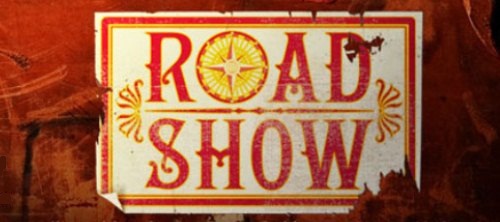
Musical
Musique: Stephen Sondheim • Paroles: Stephen Sondheim • Livret: John Weidman • Production originale: 6 versions mentionnées
Dispo: Résumé Synopsis Commentaire Génèse Liste chansons
This musical has a long and complicated history. It began as a New York workshop in October 1999 under the title “Wise Guys” with Nathan Lane and Victor Garber, directed by Sam Mendes. A legal case involving producer Scott Rudin and Weidman and Sondheim held up further production. With major re-writing, the new version opened in Chicago in June 2003, directed by Harold Prince, and re-titled “Bounce”. This version received poor notices and closed after playing Washington in November 2003. A third version was created - this time running just 90 minutes without an interval - and, under its new name, “Road Show”, it opened off-Broadway on November 18th 2008 (previews from October 28th) and closed on December 28th. This third version was directed by John Doyle and won the 2009 Obie Award for Music & Lyrics, and the Drama Desk Award for Lyrics.
Genèse: The musical premiered at the New York Theatre Workshop from October through November 1999 under the title Wise Guys. It was directed by Sam Mendes and starred Nathan Lane and Victor Garber as brothers Addison Mizner and Wilson Mizner. A legal case involving Scott Rudin and Weidman and Sondheim held up further production. Substantially rewritten and retitled Bounce, the show opened on June 20, 2003 at the Goodman Theatre in Chicago. The production was directed by Harold Prince, with choreography by Michael Arnold, set design by Eugene Lee, costume design by Miguel Angel Huidor, and lighting design by Howell Binkley The cast starred Richard Kind (Addison Mizner), Howard McGillin (Wilson Mizner), Jane Powell (Mama Mizner), Herndon Lackey (Papa Mizner/Businessman/Englishman/Plantation Owner/Armstrong/Real Estate Owner), Gavin Creel (Hollis Bessemer), and Michele Pawk (Nellie). The musical then ran at the Kennedy Center in Washington, D.C. in October and November 2003 with the Chicago cast. It received mixed–to–negative reviews and was not produced in New York. A private reading of Bounce was held at the Public Theater on February 6, 2006. Playbill reported that Eric Schaeffer directed, with Richard Kind and Bernadette Peters among the cast. A new production of the musical, titled Road Show, rewritten without an intermission and without the leading female character of Nellie (who had been added for 2003 production), opened Off-Broadway at The Public Theatre's Newman Theater in previews on October 28, 2008, officially opening on November 18, and closing December 28, 2008. John Doyle was the director and designer, with Michael Cerveris and Alexander Gemignani playing brothers Wilson and Addison Mizner respectively, Alma Cuervo as Mama, Claybourne Elder as Hollis, and William Parry as Papa. This production won the 2009 Obie Award for Music and Lyrics. and the Drama Desk Award, Outstanding Lyrics (Sondheim). The title changes reflect the creators' attempts to hone the show's story and themes. "Ideally the title is connected to what we hope the show is about," Weidman says.[13] The musical opened at the Menier Chocolate Factory, London in previews on June 24, 2011, officially on July 6 and closed on September 18. John Doyle was the director and designer, with a cast featuring Michael Jibson, David Bedella and Jon Robyns.[14]
Résumé: Tells the true boom-and-bust story of the architect Addison Mizner and his fast-talking brother Wilson, two of the most colourful and outrageous fortune-seekers in American history. From panning for gold in Alaska to building the city of Boca Raton in Florida, both were driven by the need to succeed - at whatever cost. Unfortunately, this left them with a trail of debts, disastrous relationships (including their own as brothers) and unfulfilled dreams.
Création: 29/10/1999 - New York Theatre Workshop (Broadway (Off)) - représ.
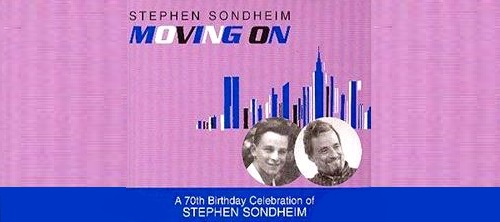
Revue
Musique: Stephen Sondheim • Paroles: Livret: Production originale: 1 version mentionnée
Dispo: Résumé Liste chansons
Genèse:
Résumé: This was a follow-up to “Side by Side by Sondheim”, with a similar format, though this time using filmed sequences and recordings featuring Sondheim himself in place of the earlier narrator. It was staged to mark Sondheim’s 70th birthday.
Création: 19/7/2000 - Bridewell Theatre (Londres) - représ.

Musical
Musique: Stephen Sondheim • Paroles: Stephen Sondheim • Livret: James Lapine • Production originale: 1 version mentionnée
Dispo: Résumé
Genèse:
Résumé: A revue of the works of Stephen Sondheim, interspersed with videos of him talking about his life and career. Produced in honor of his 80th birthday.
Création: 22/4/2010 - Studio 54 (Broadway) - 72 représ.
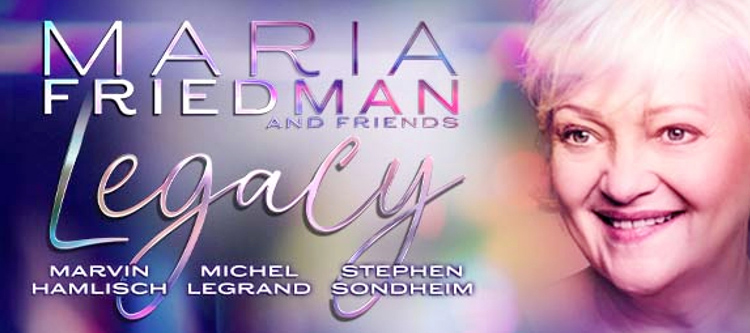
Concert
Musique: Marvin Hamlisch • Michel Legrand • Stephen Sondheim • Paroles: Livret: Production originale: 1 version mentionnée
Dispo: Résumé Commentaire
Maria Friedman célébre le génie de Marvin Hamlisch, Michel Legrand et Stephen Sondheim. Friedman a joué avec chacun plusieurs fois, devenant un interprète très apprécié de leurs œuvres. Maintenant avec des amis anciens et nouveaux, elle explore l'héritage de ces titans du théâtre musical du XXe siècle.
Genèse:
Résumé: En collaboration avec ses amis, directeur musical et pianiste, Theo Jamieson, et avec ses collègues interprètes Matthew White, Ian McLarnon, Alfie Friedman et Desmonda Cathabel, et une chorale de la Royal Academy of Music, ce spectacle promet d'être une célébration digne de certains des les plus grands compositeurs du XXe siècle. Jamieson sera accompagné de Paul Moylan à la contrebasse et James Powell aux percussions.
Création: 3/3/2022 - Menier Chocolate Factory (Londres) - représ.

.png)
.png)





